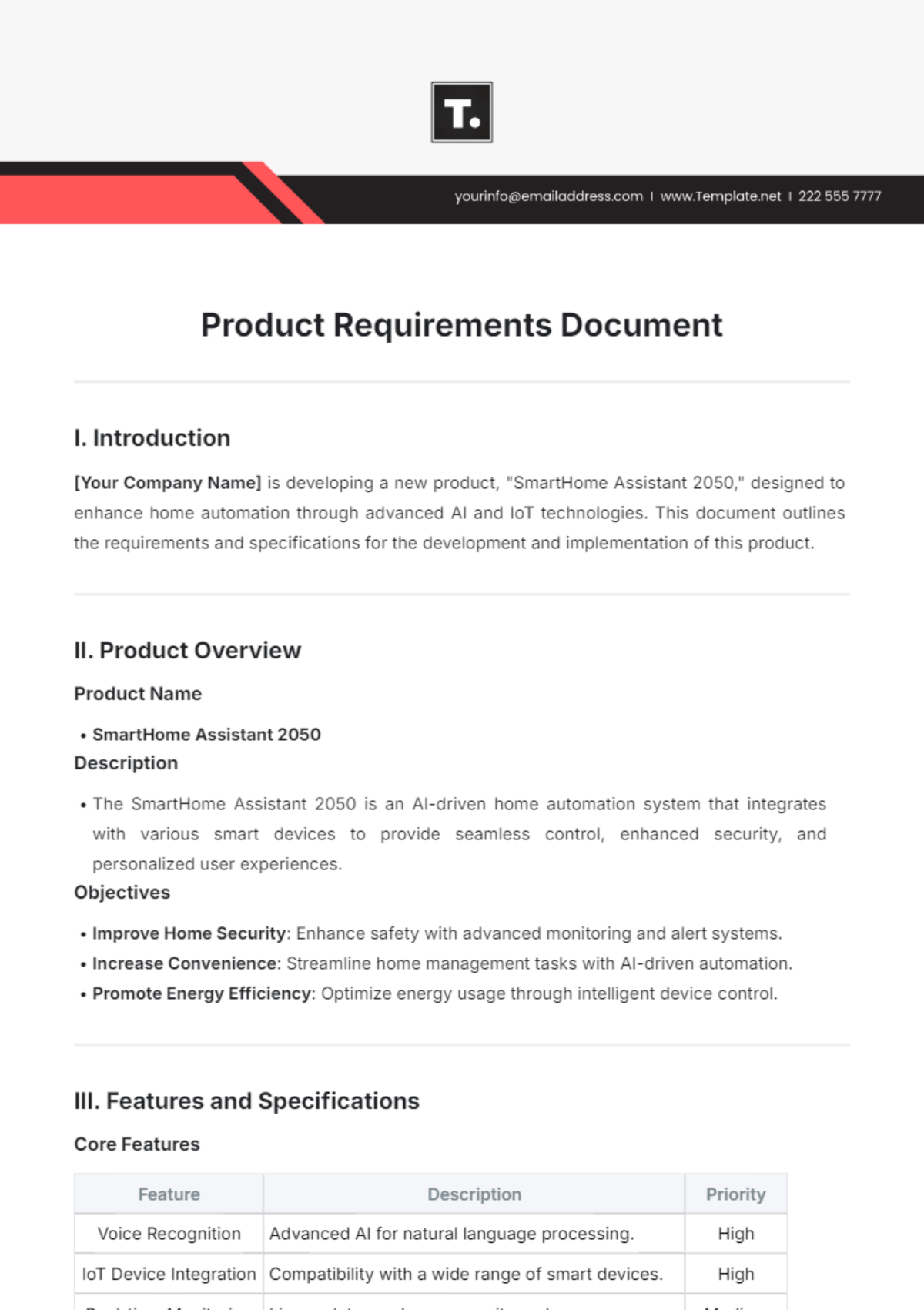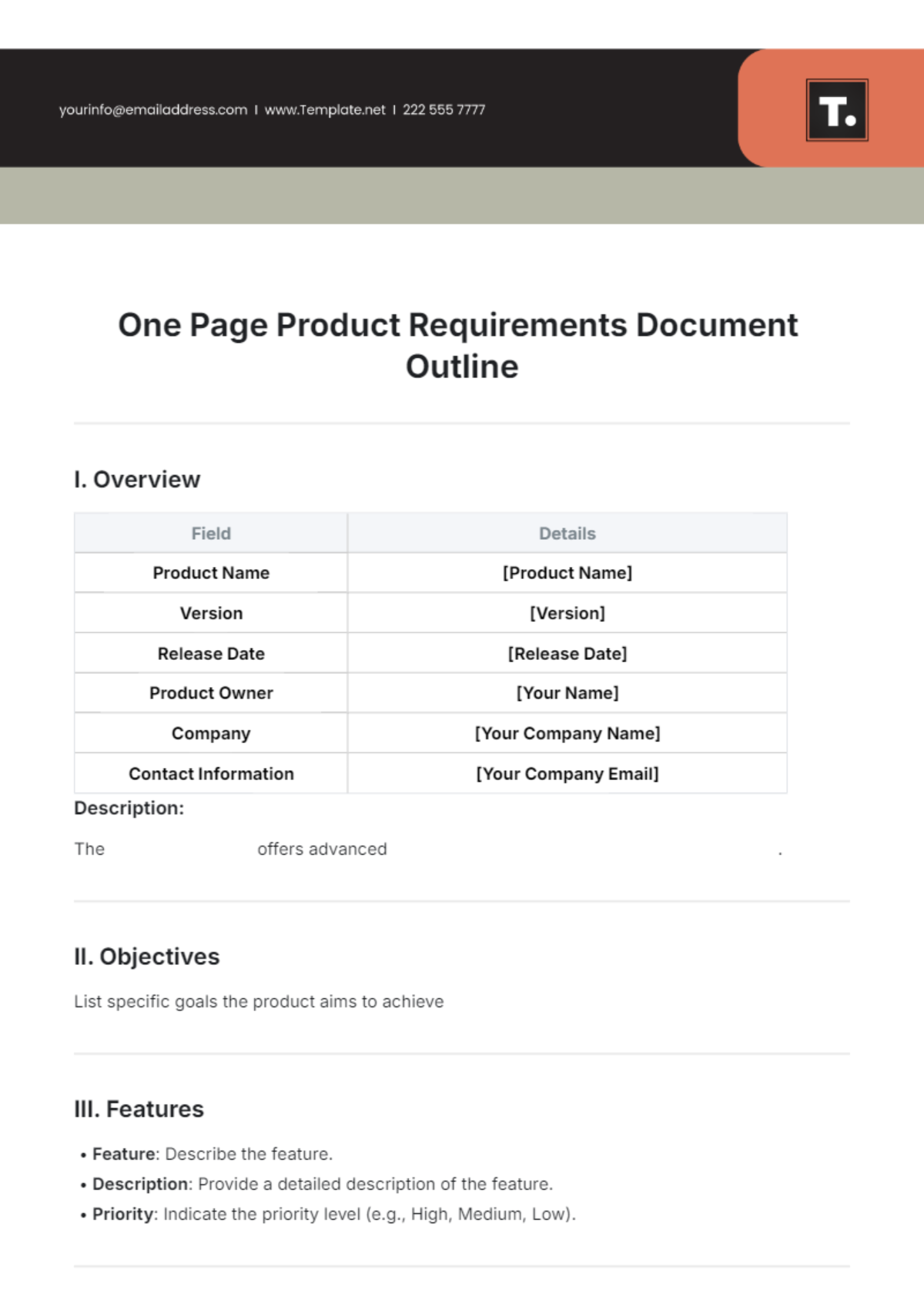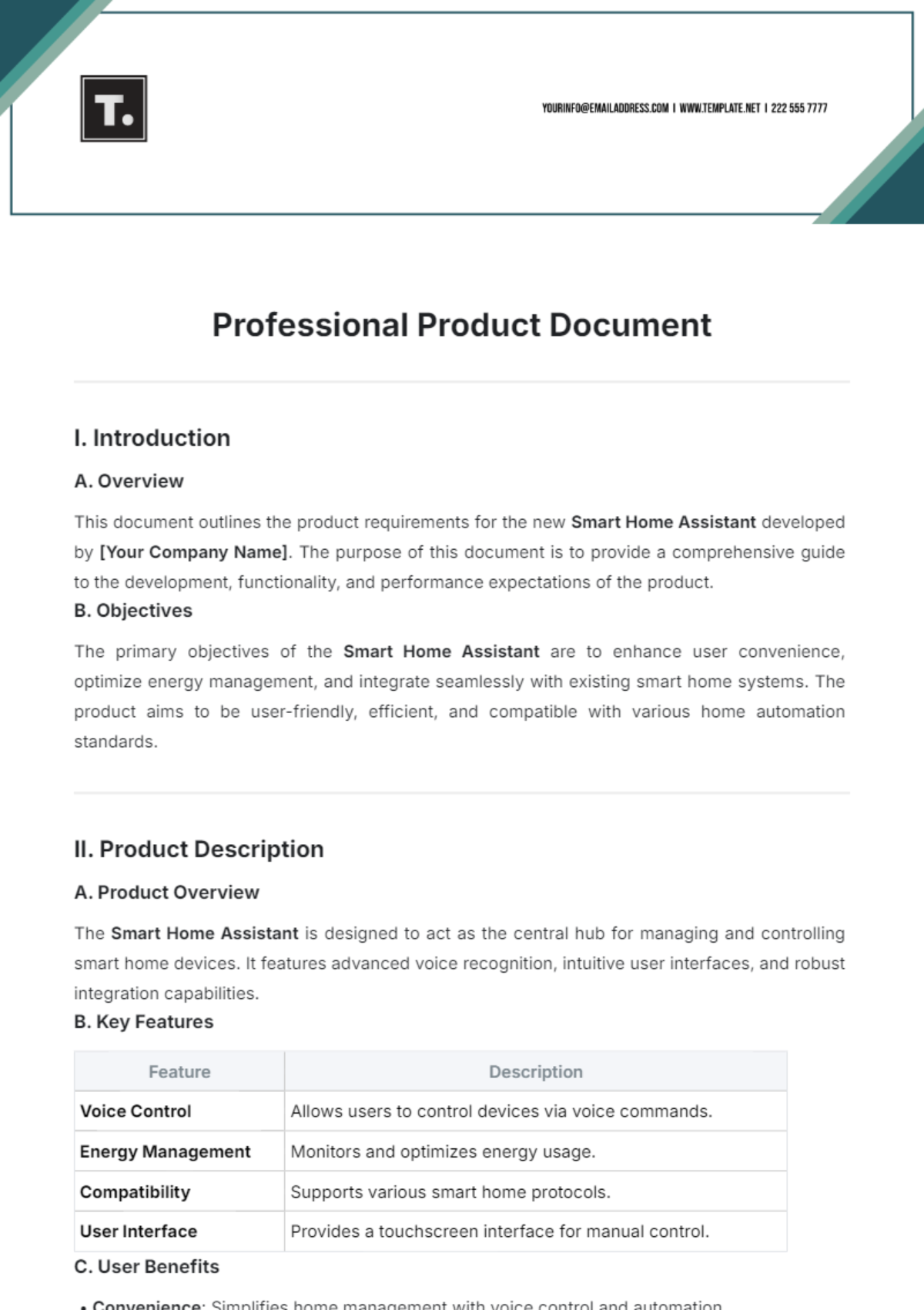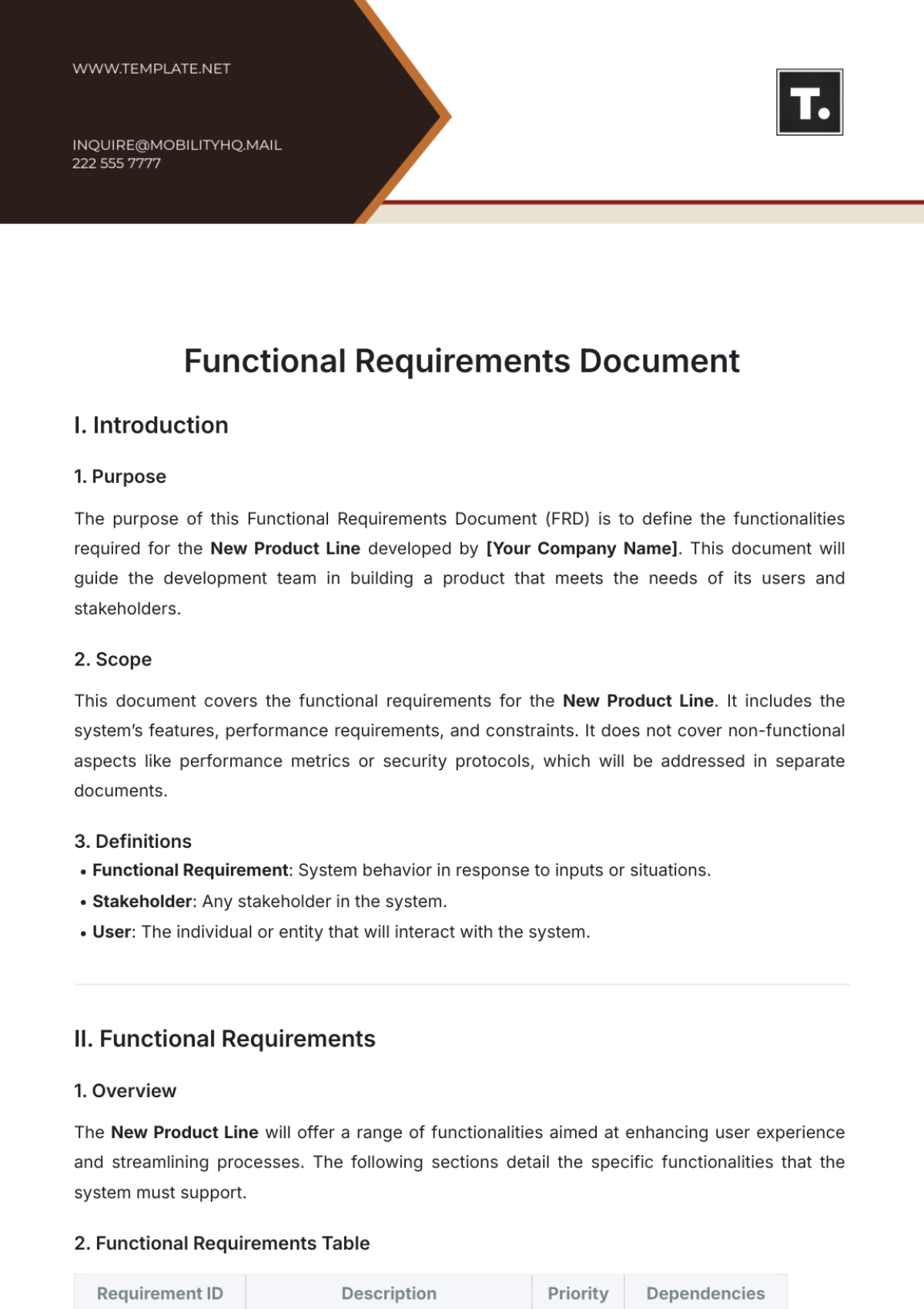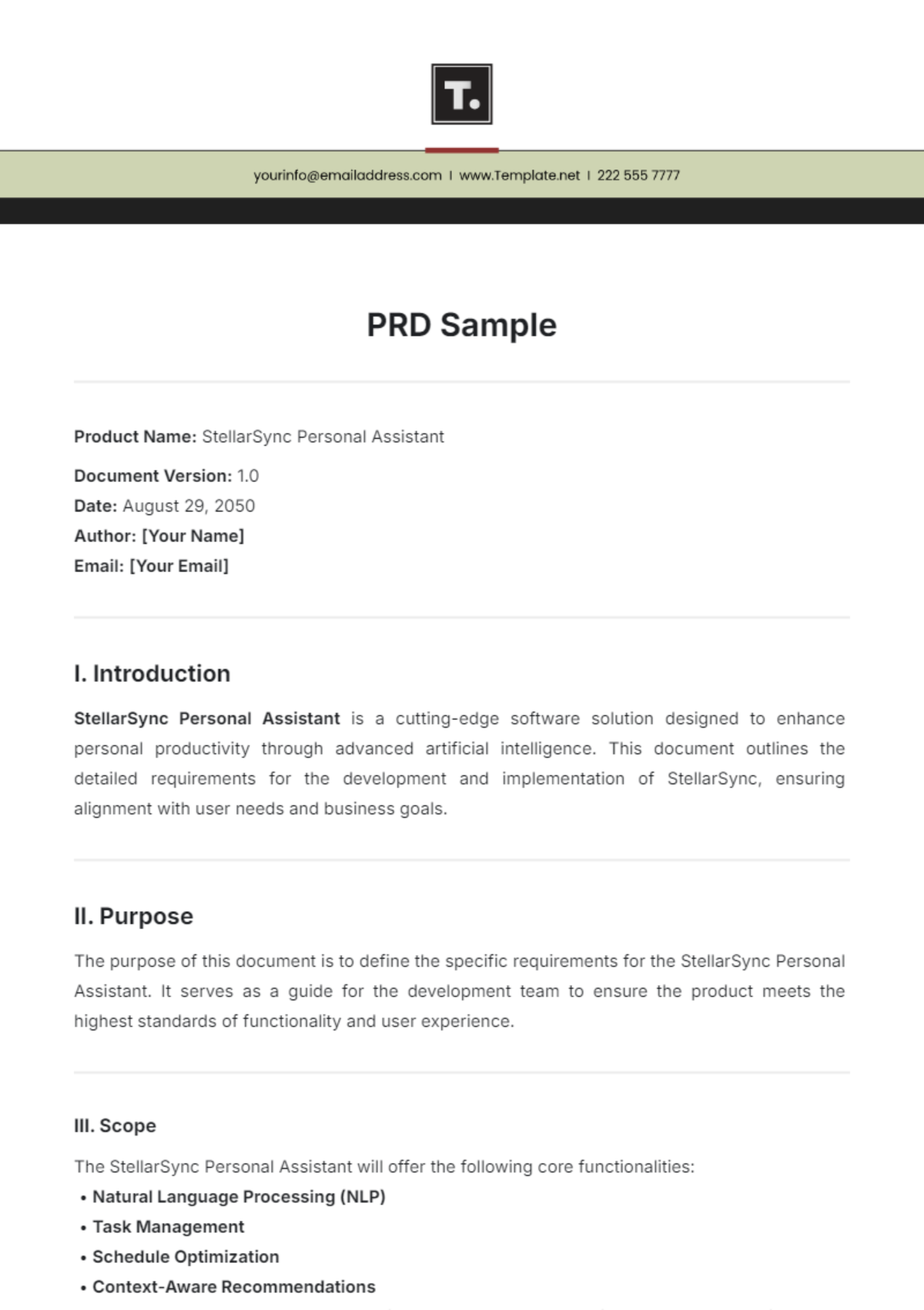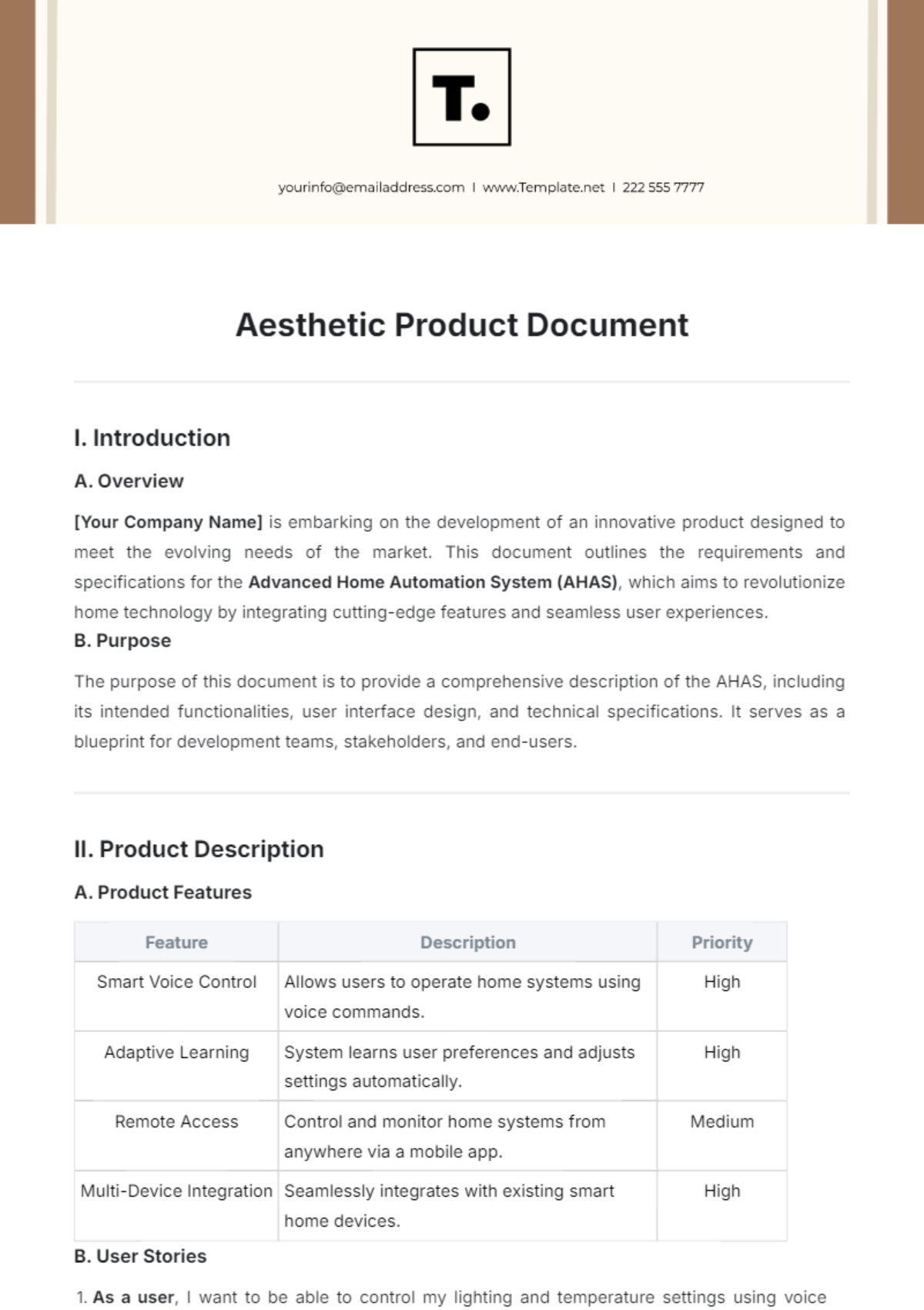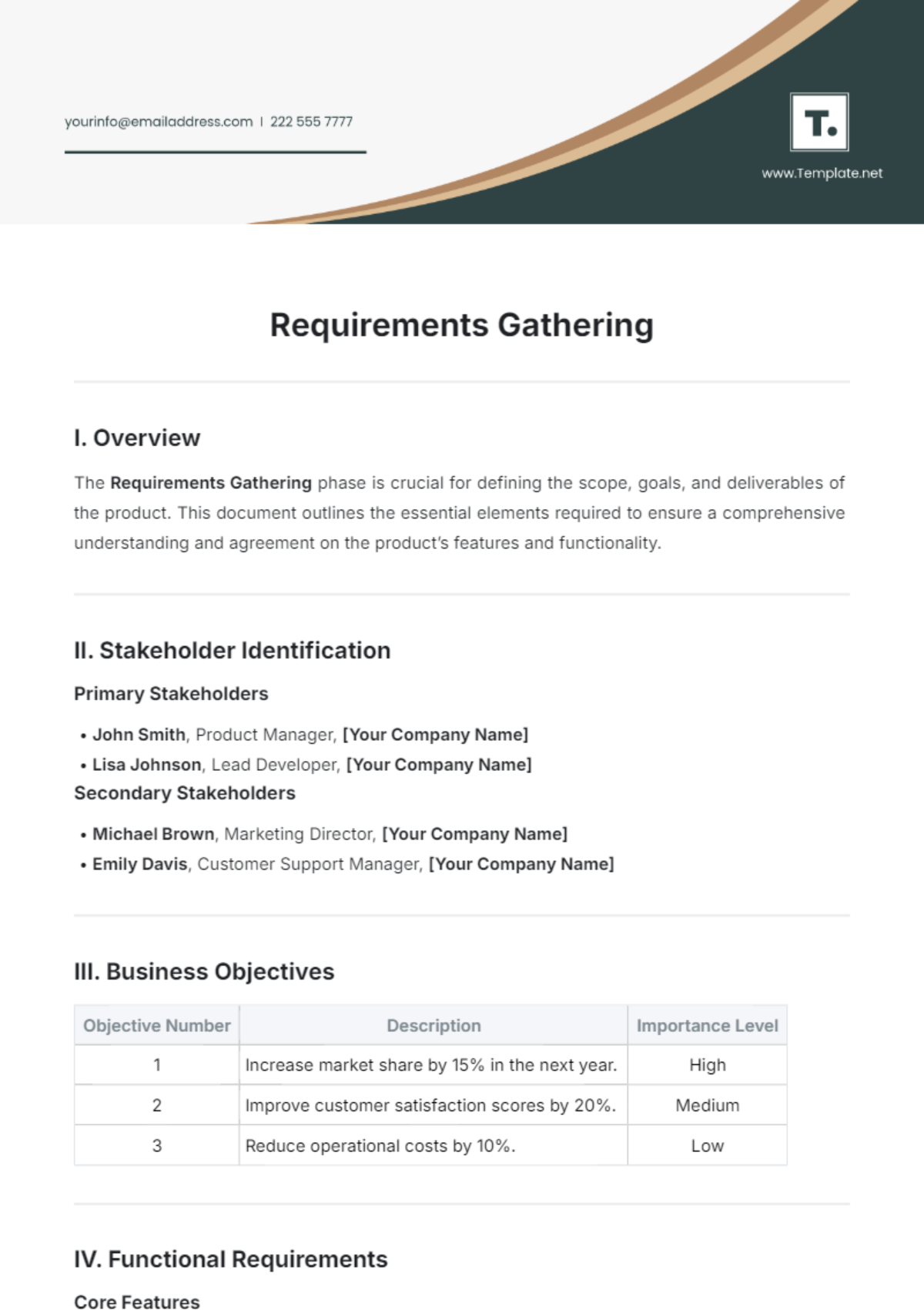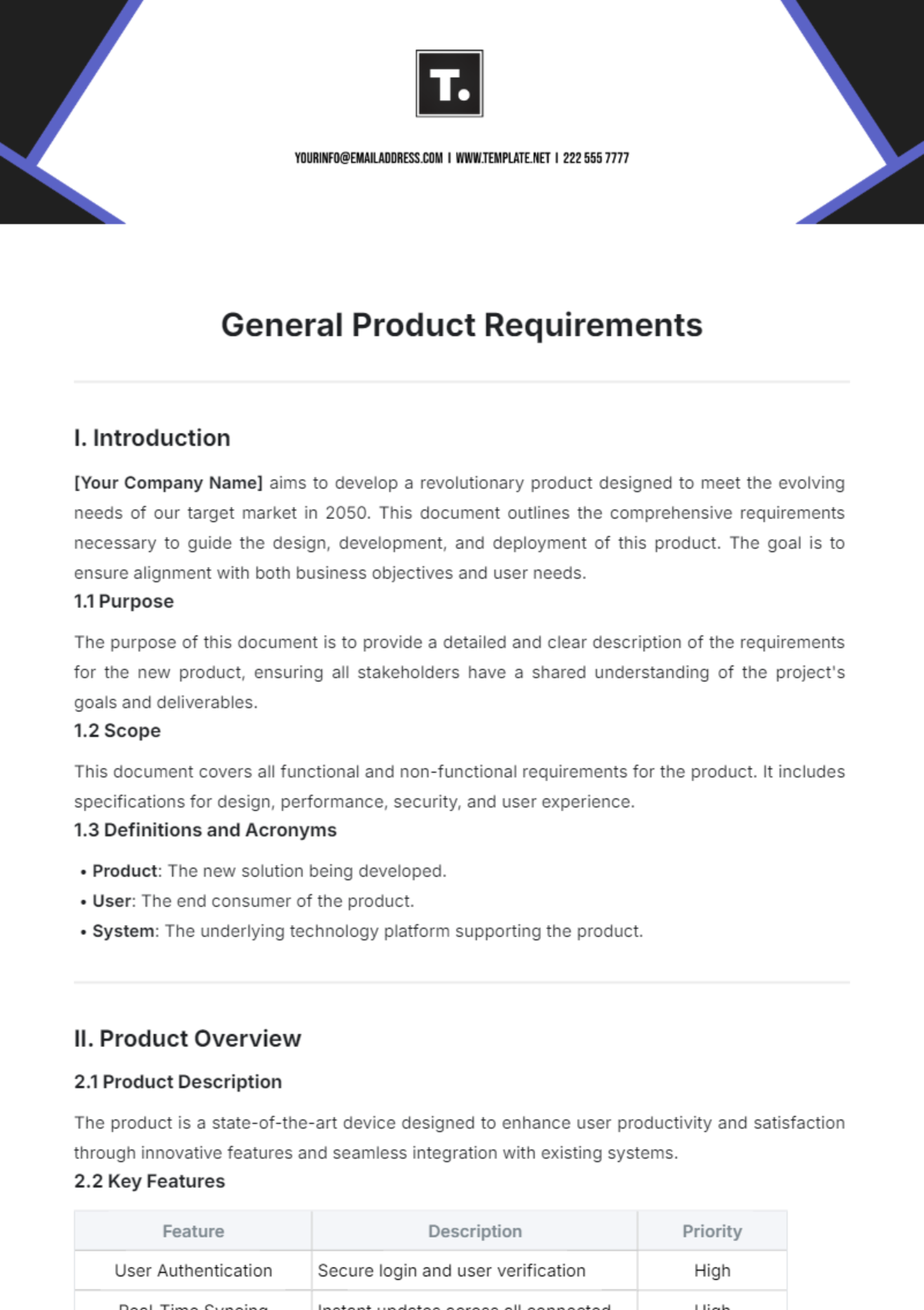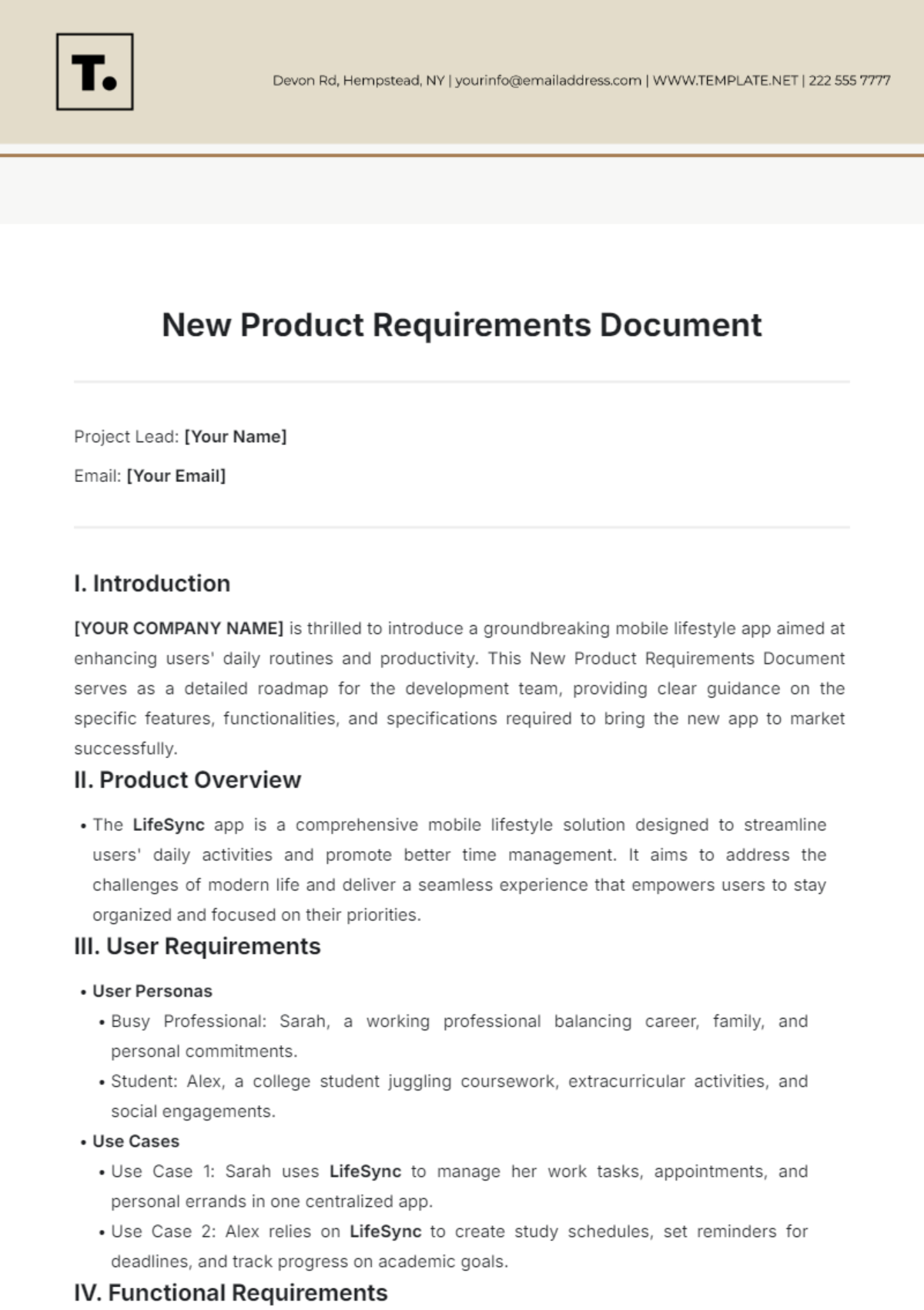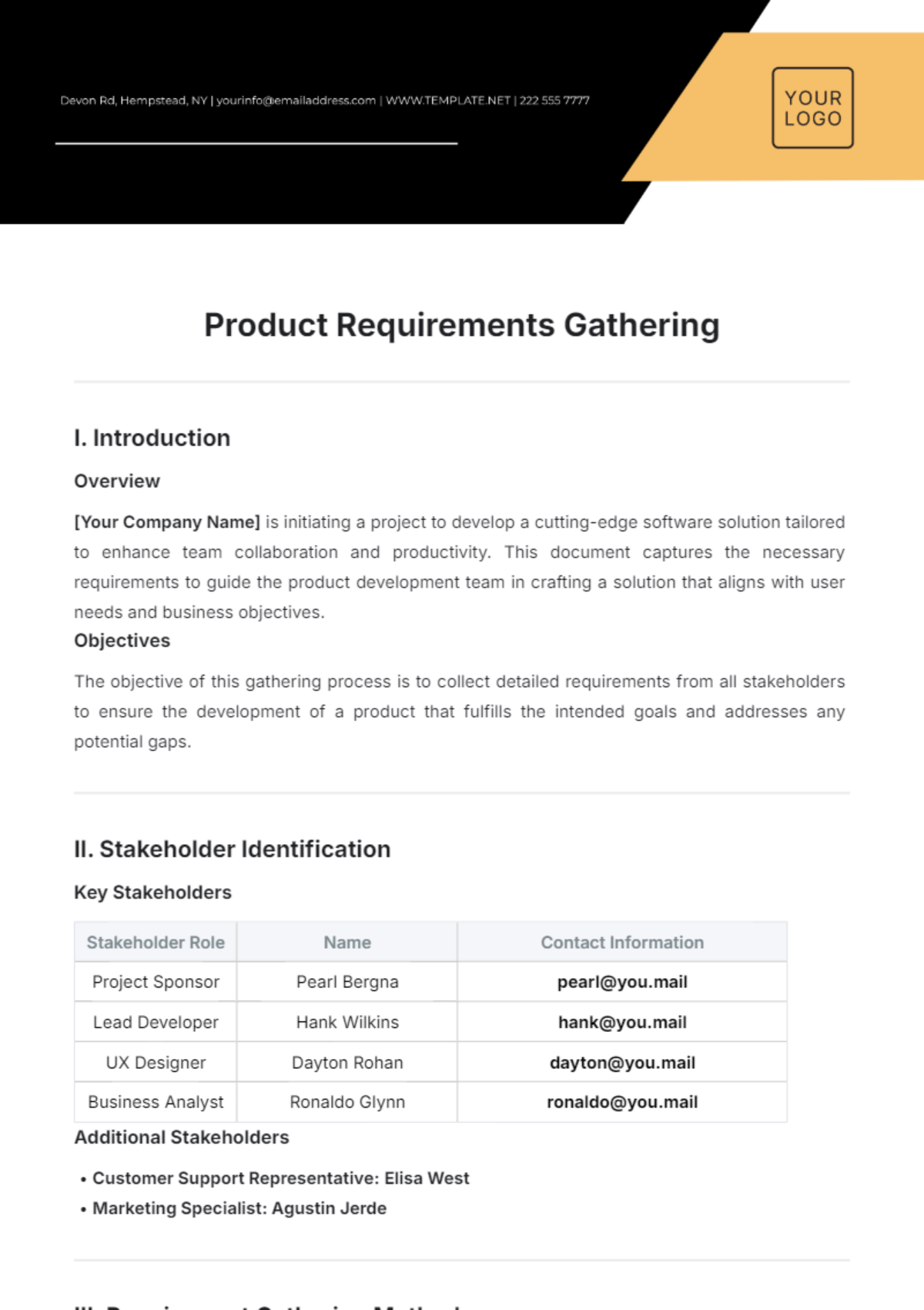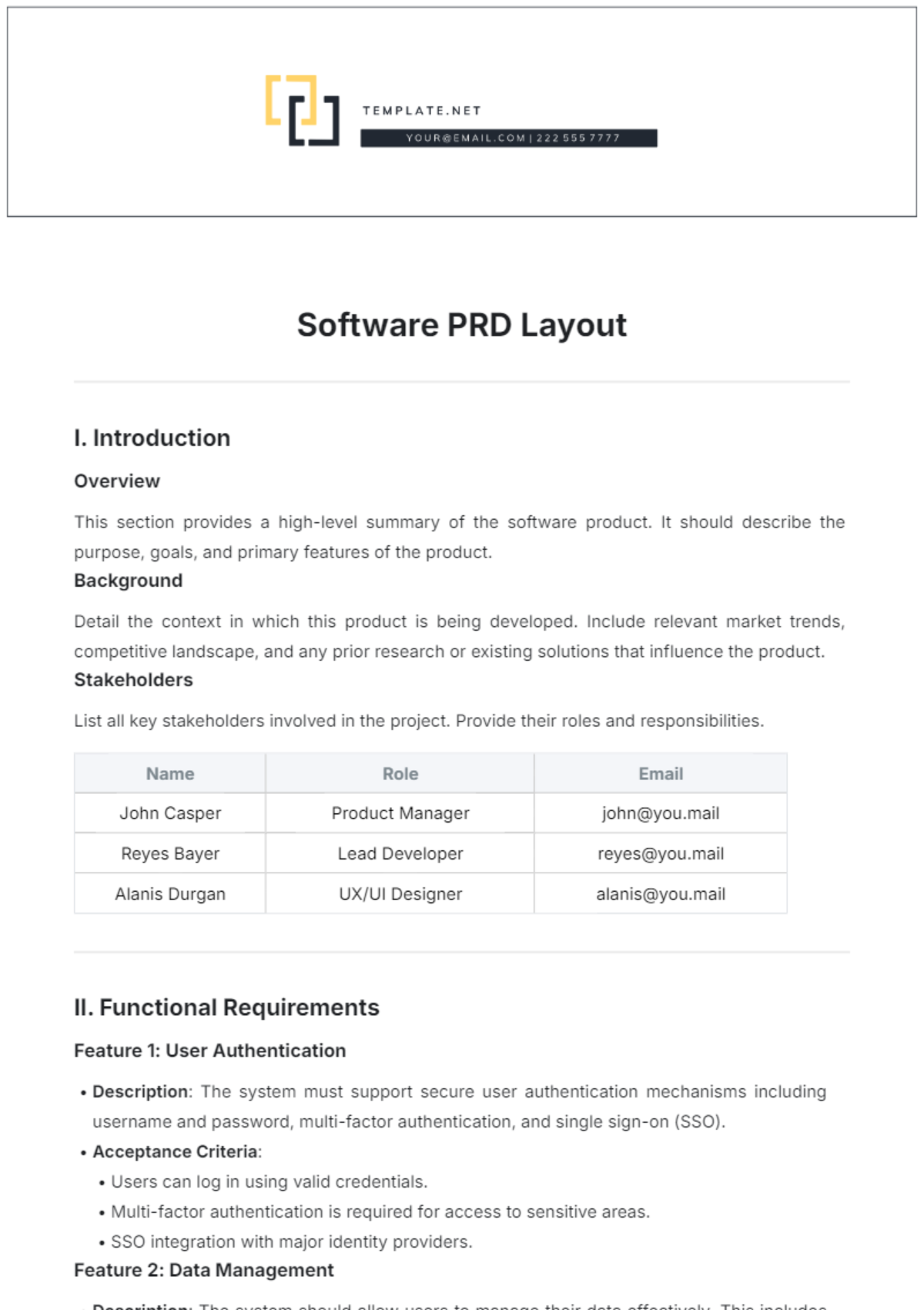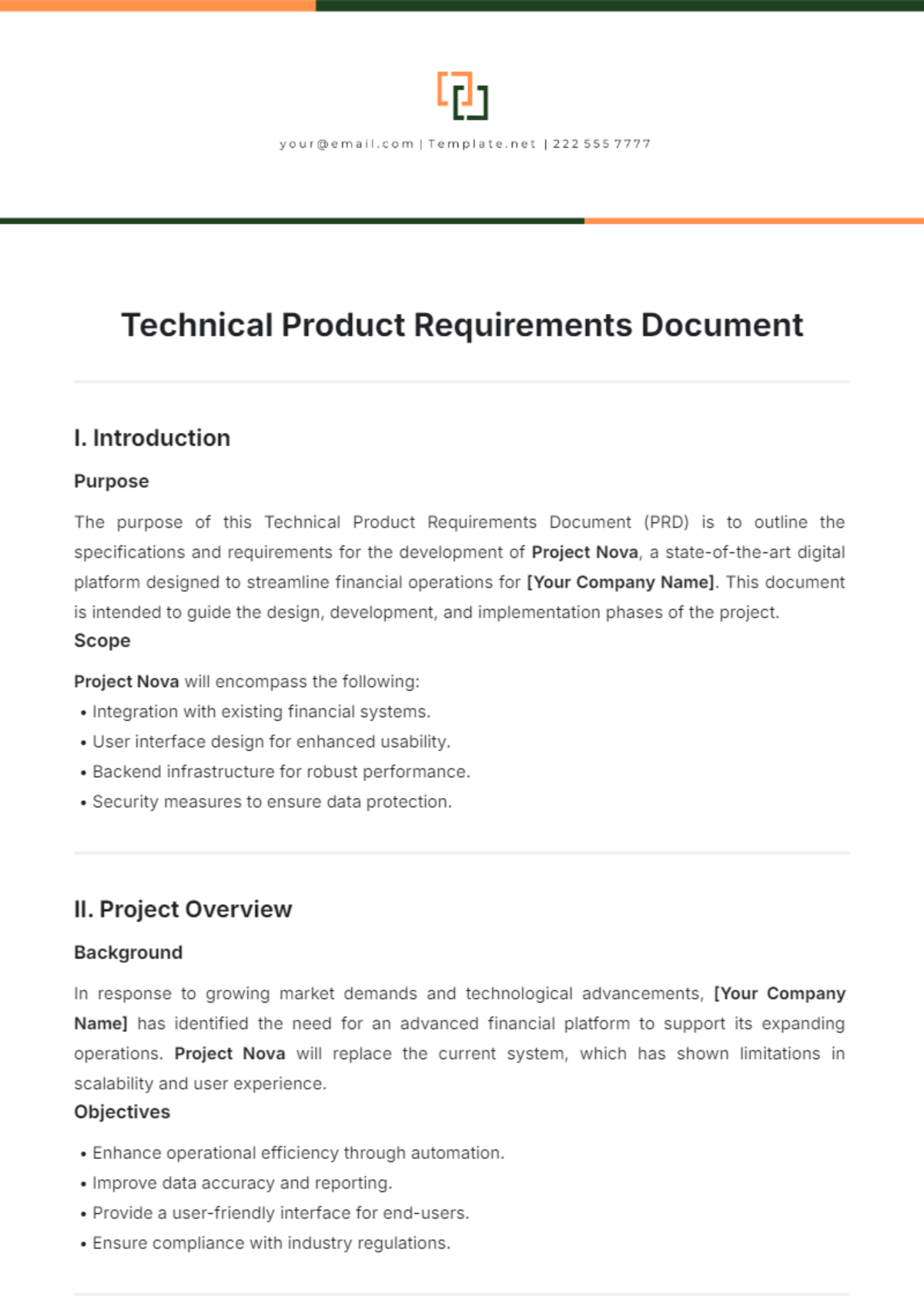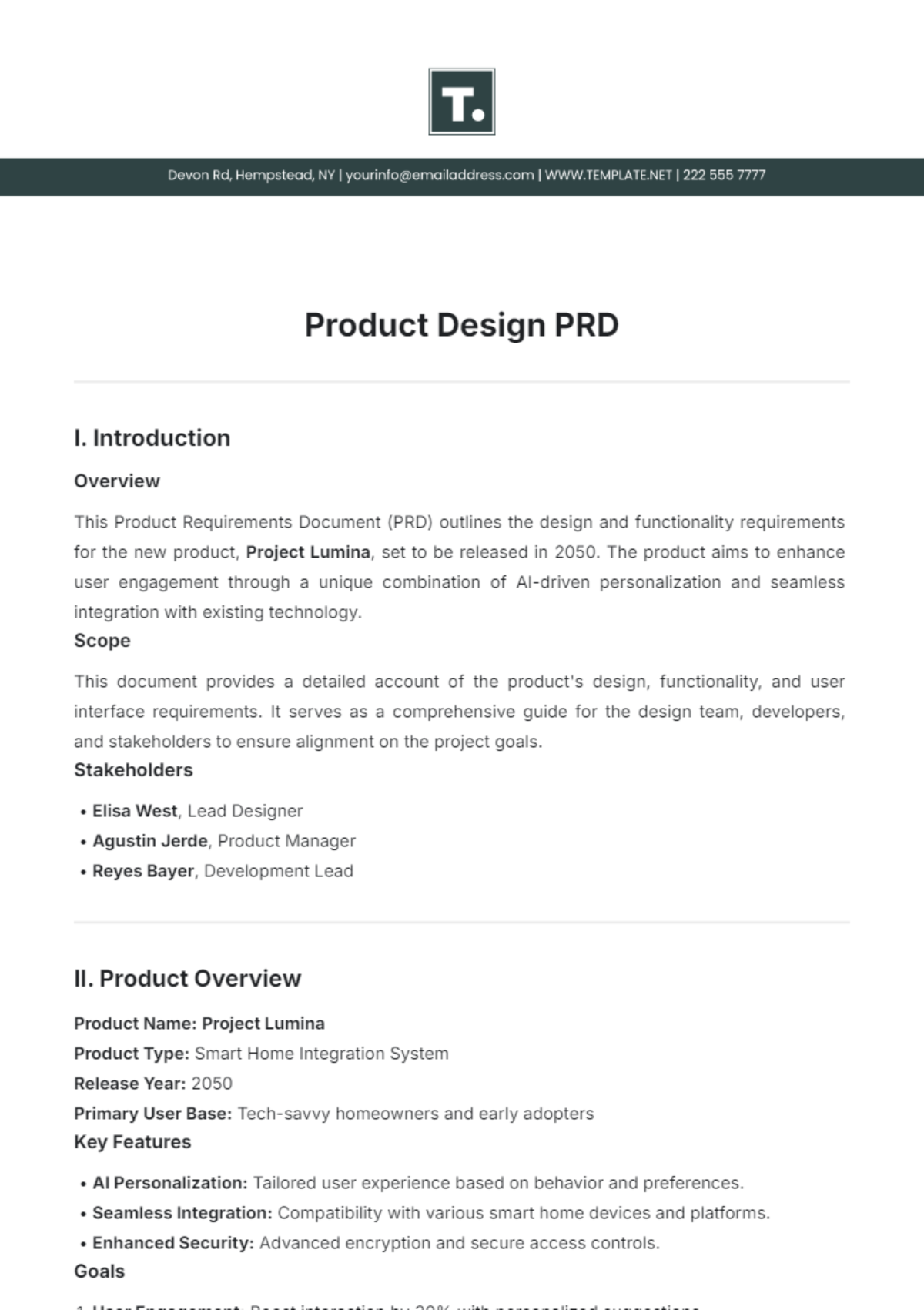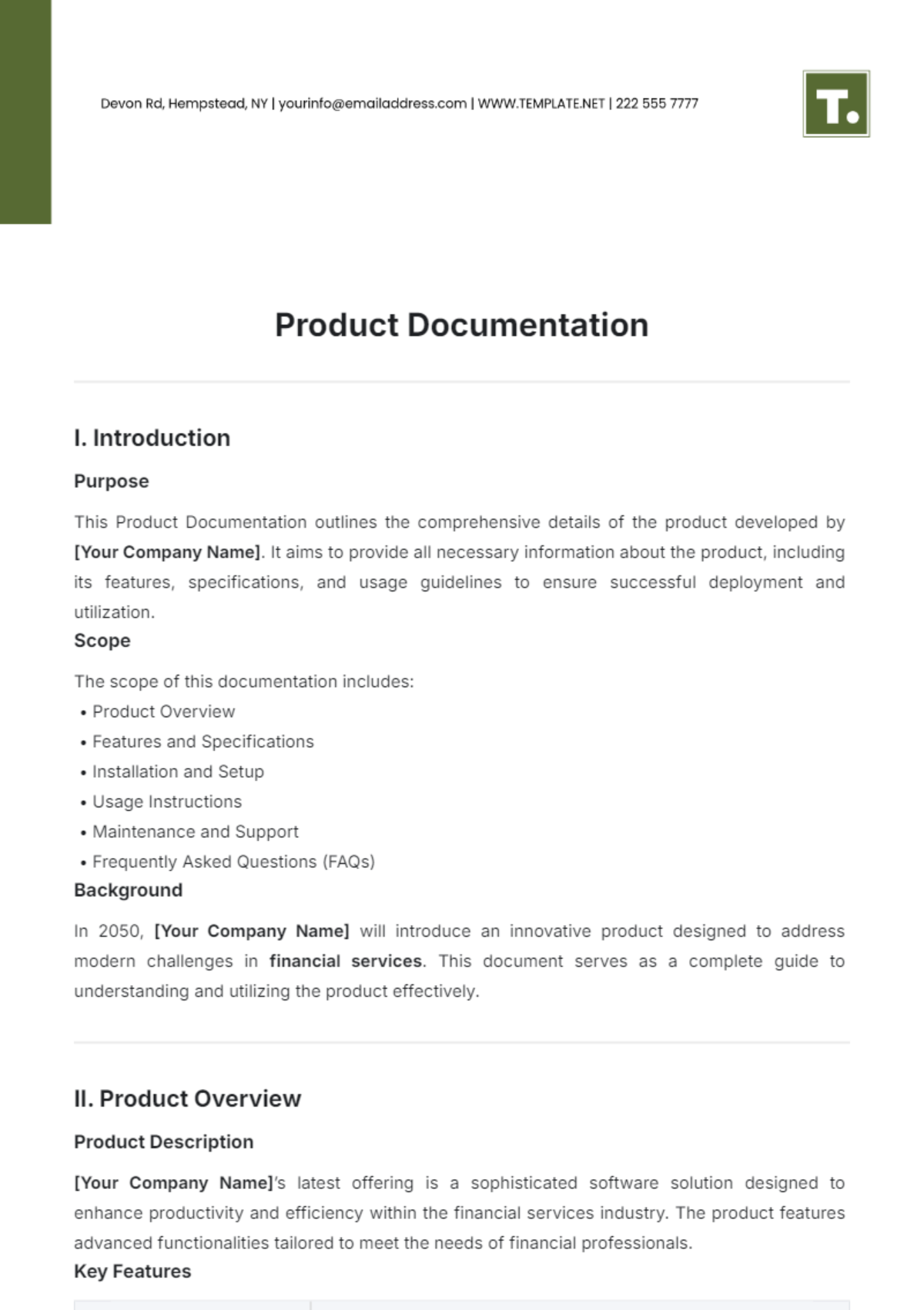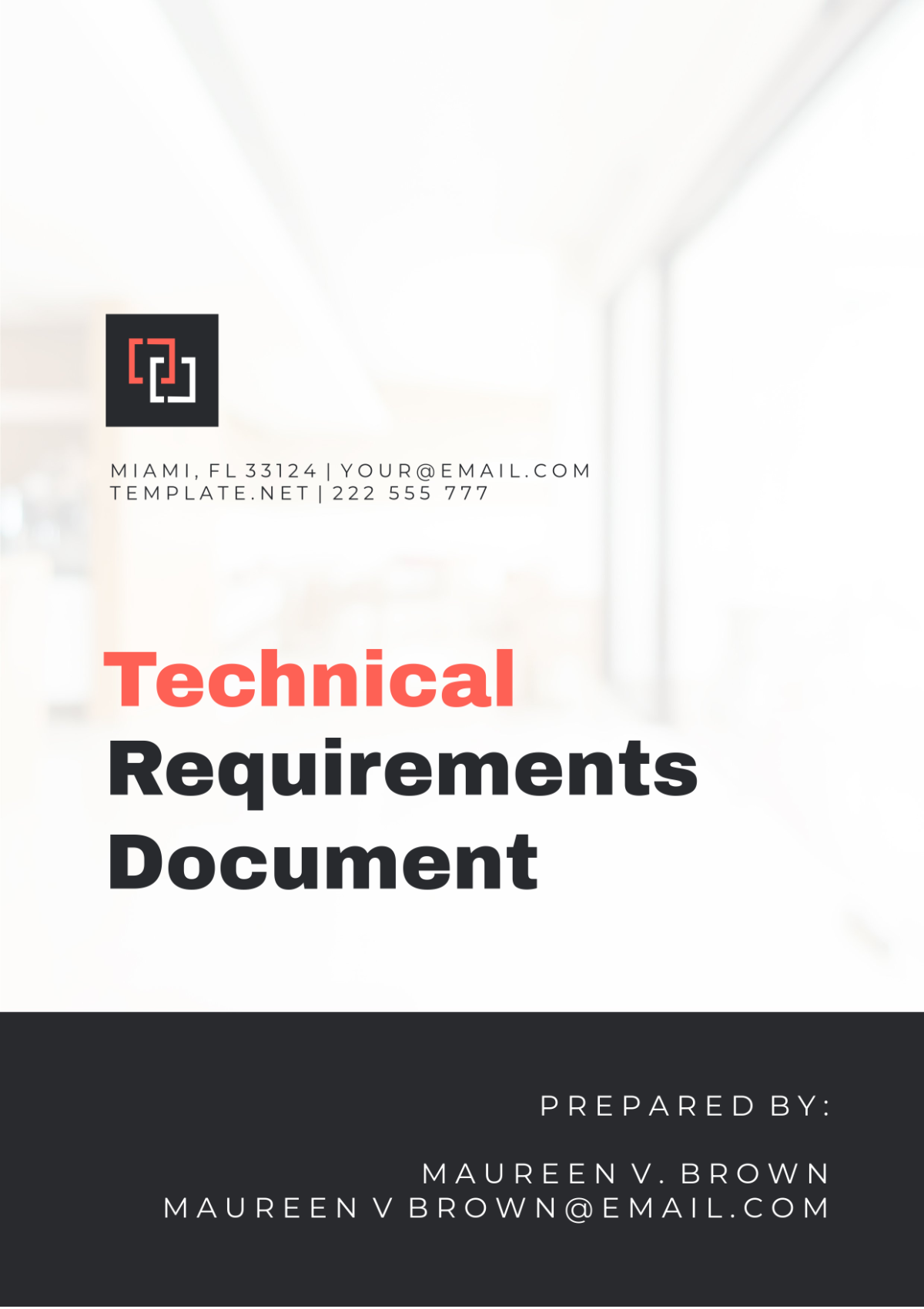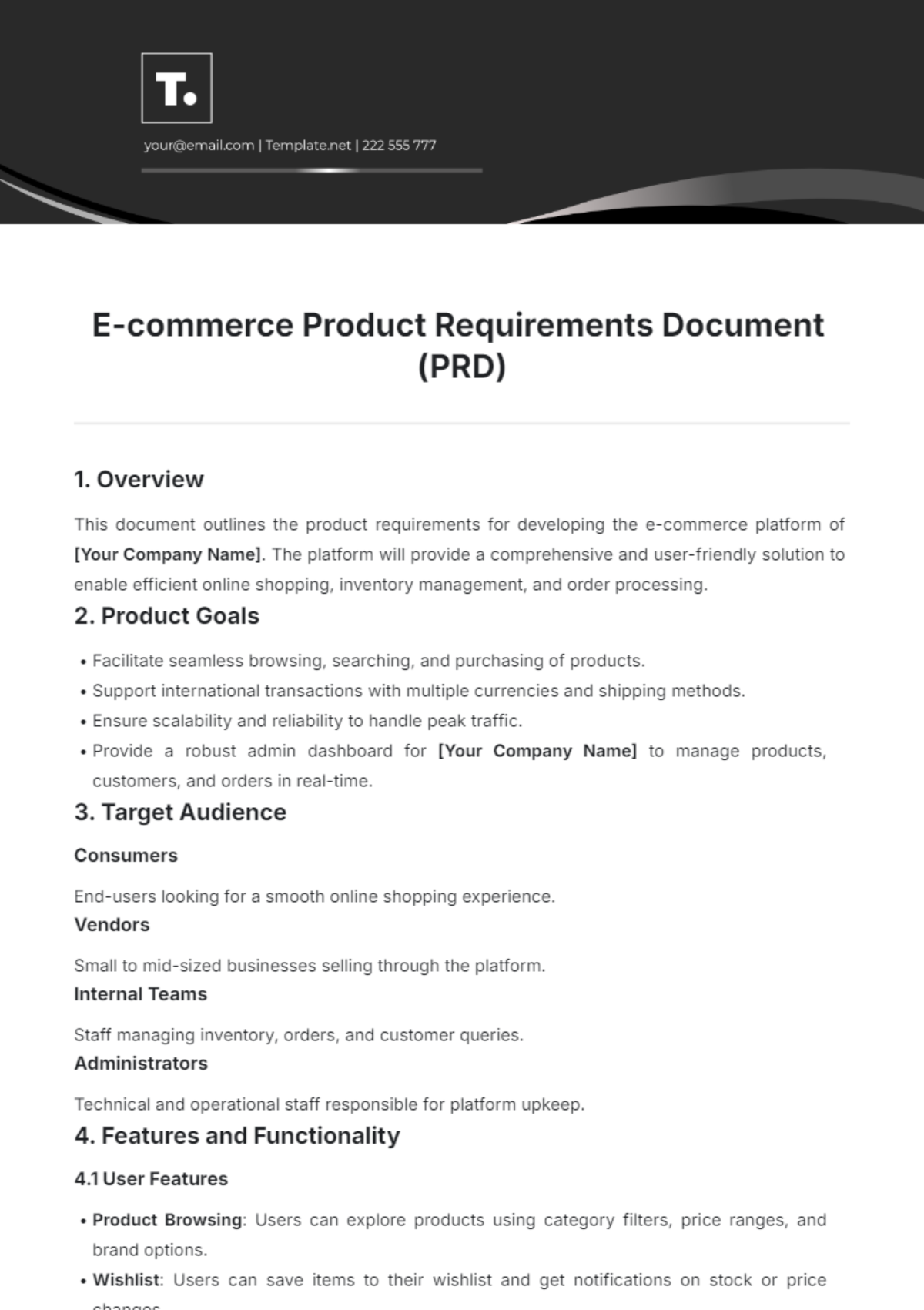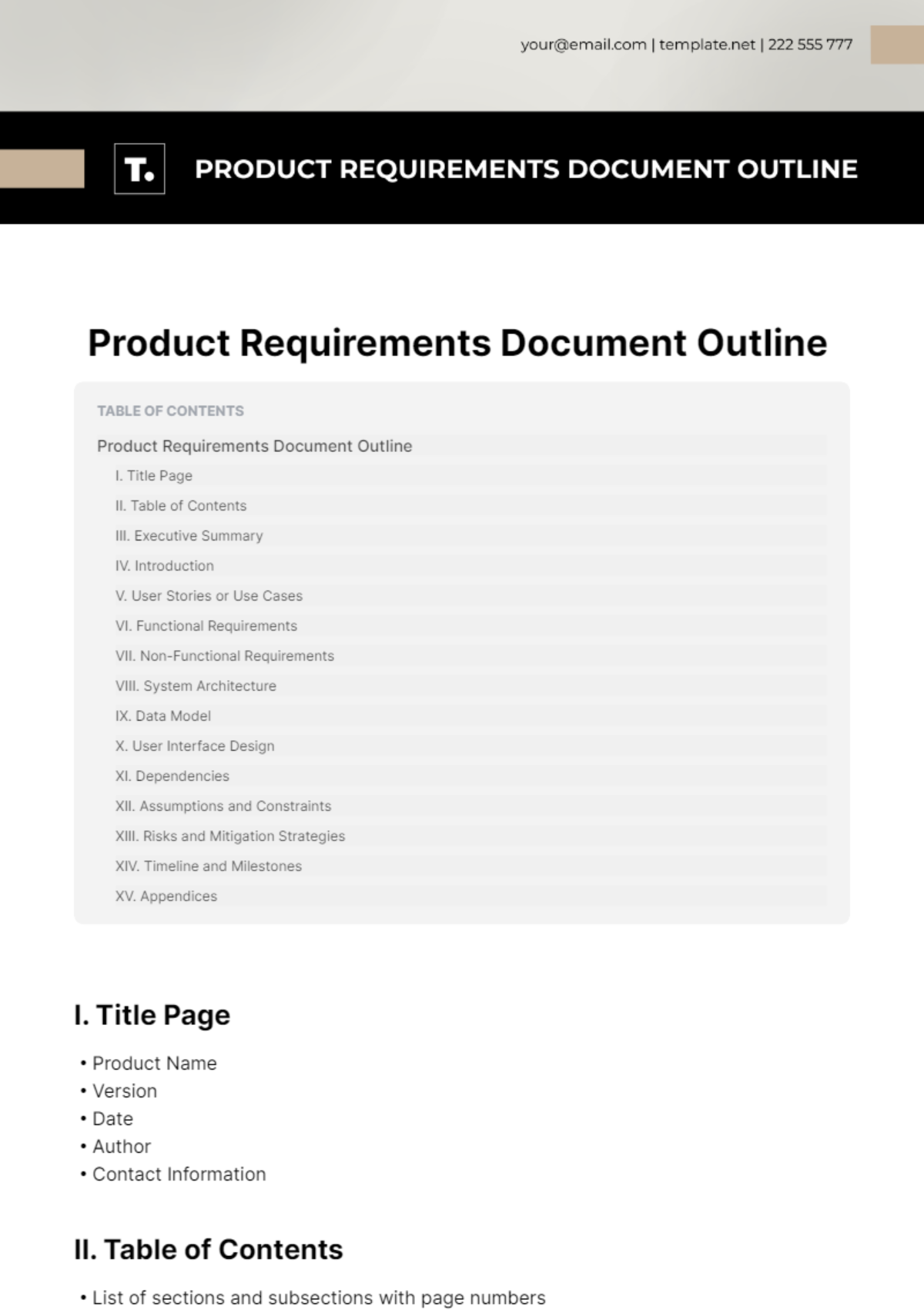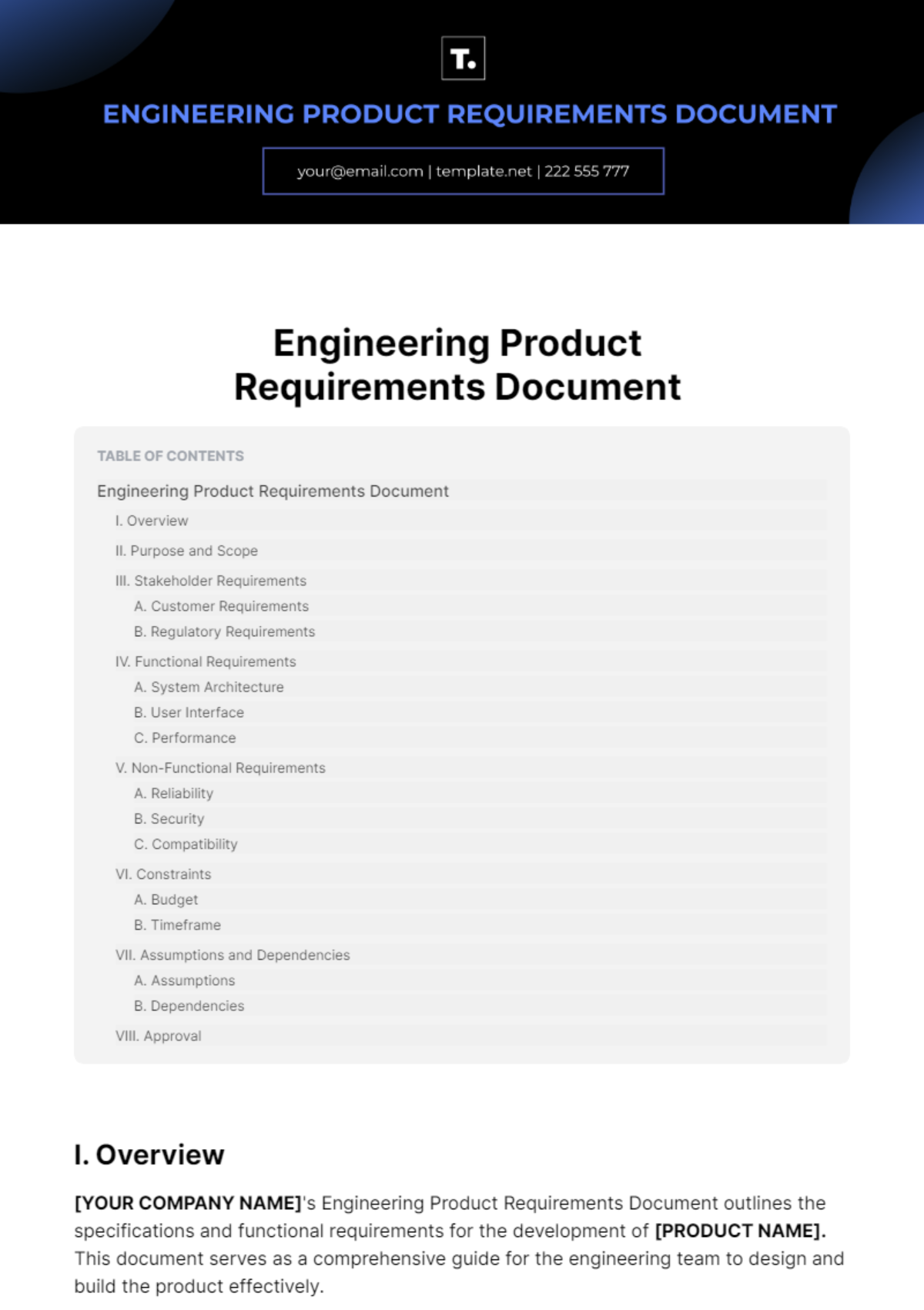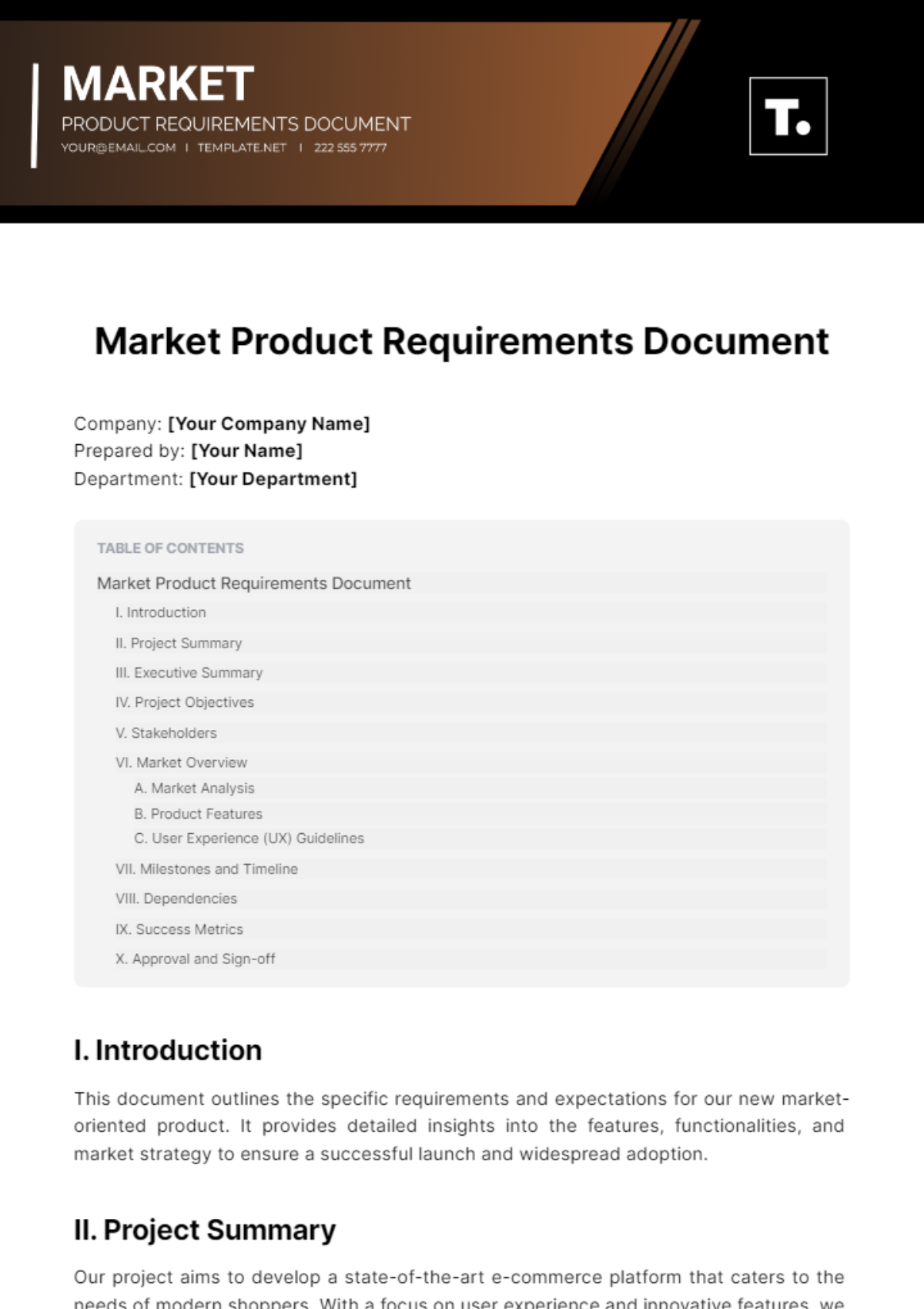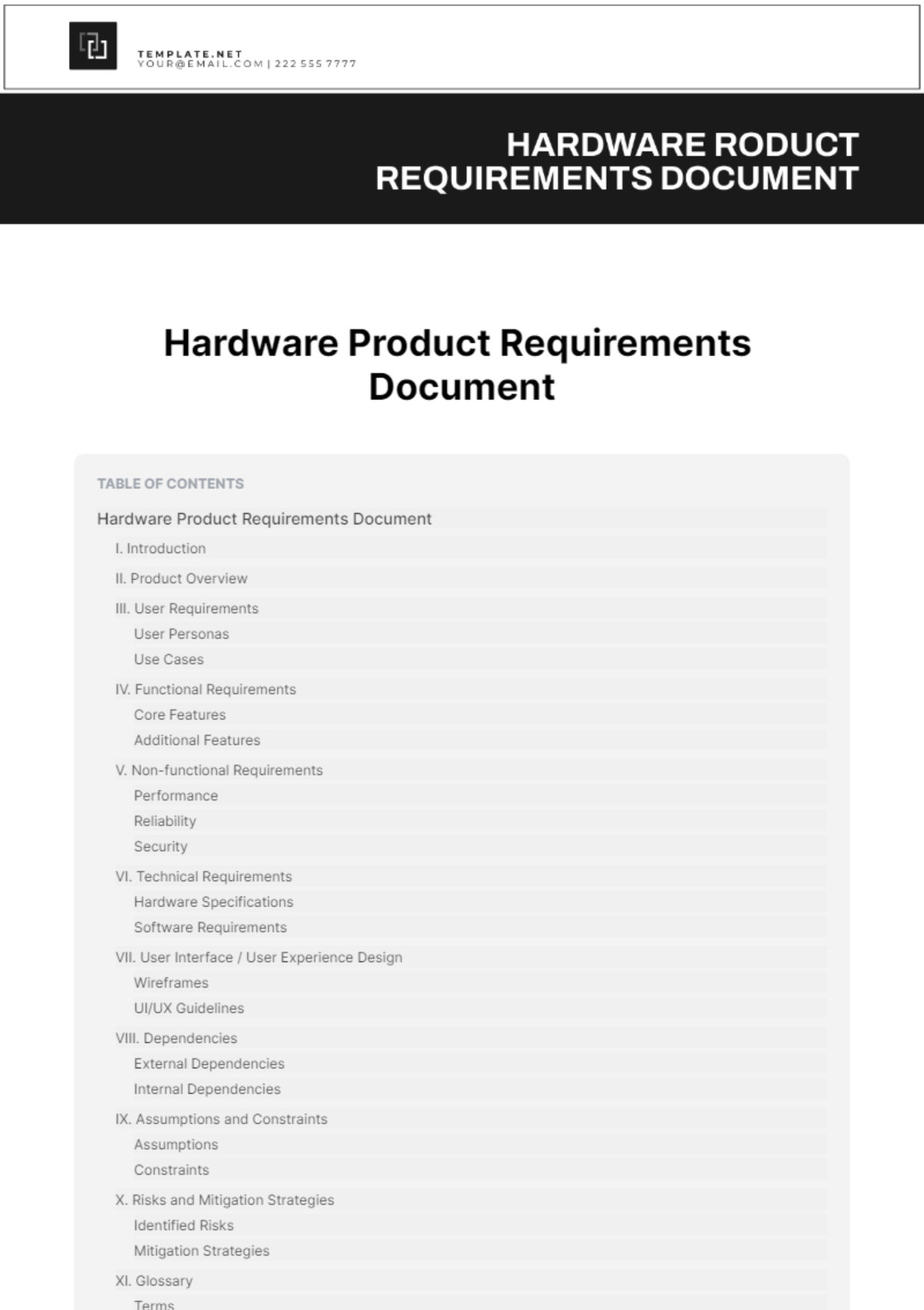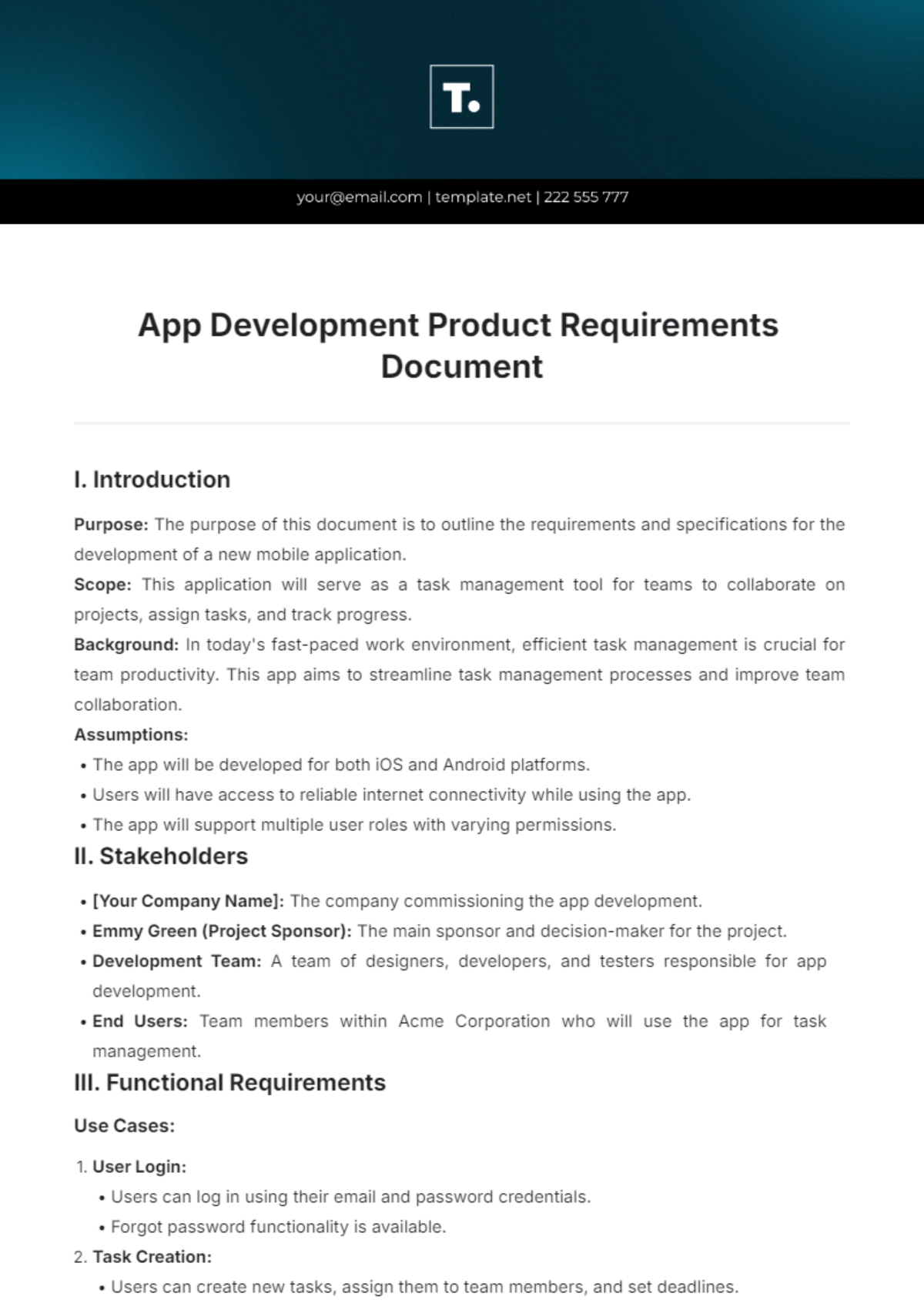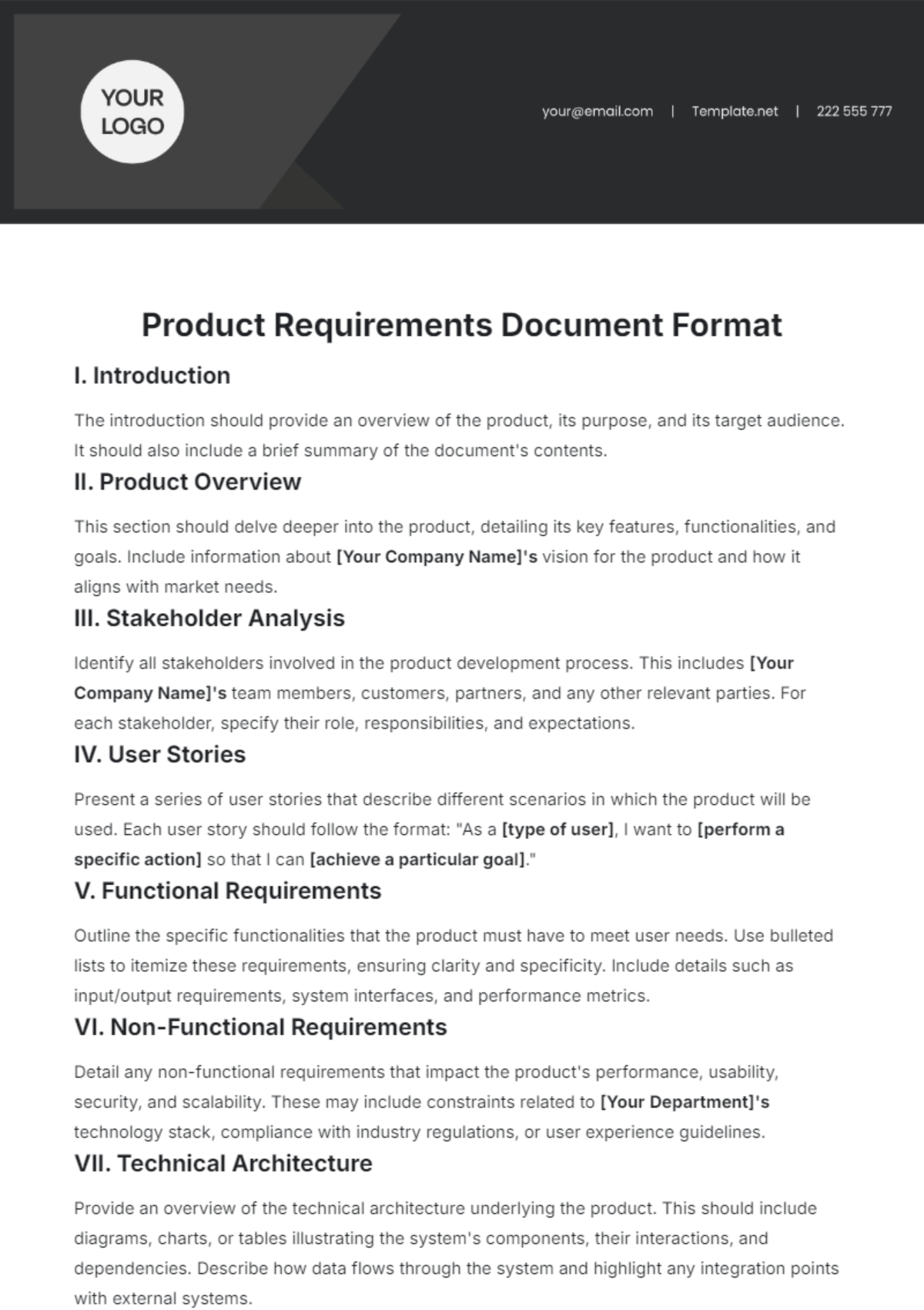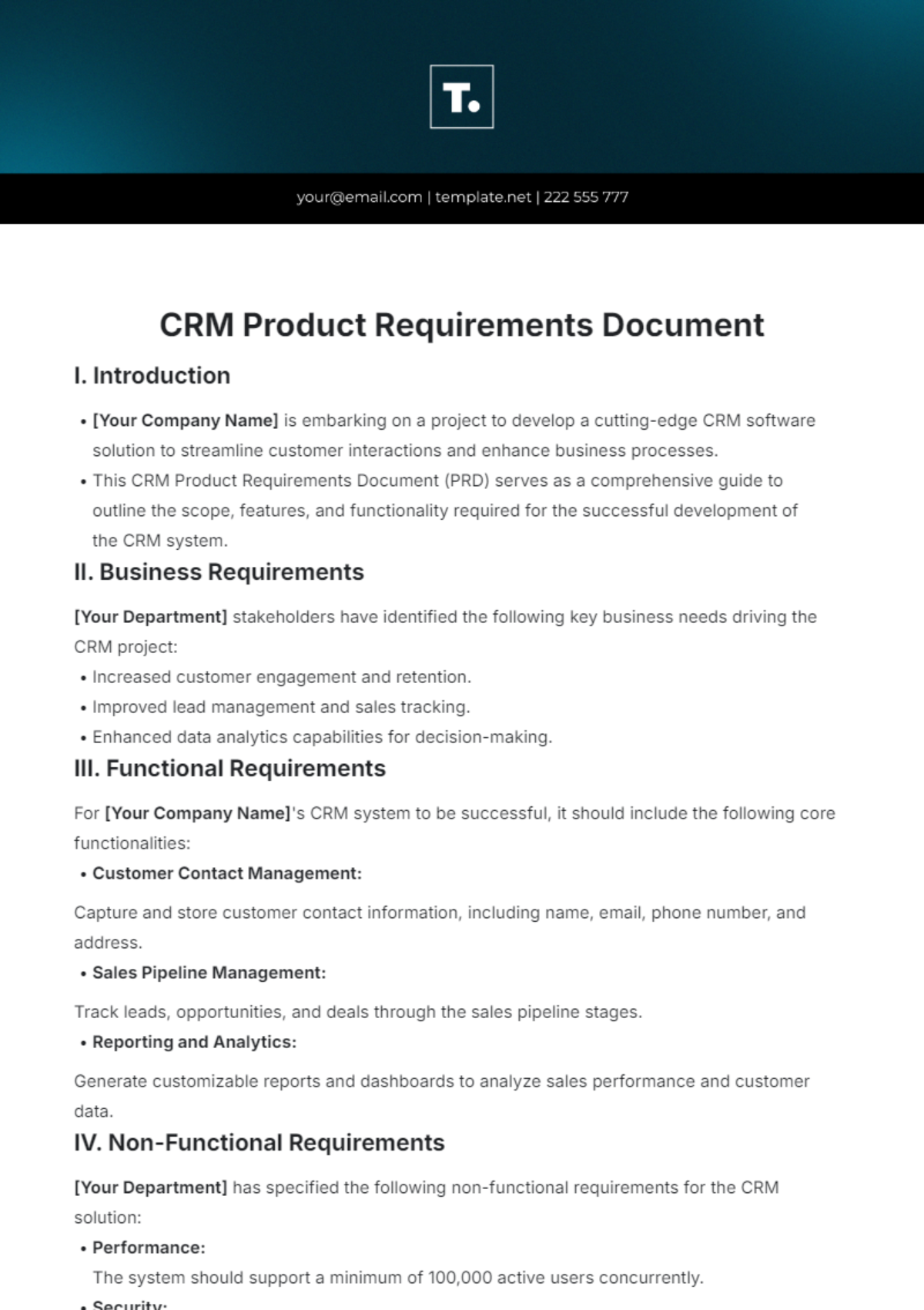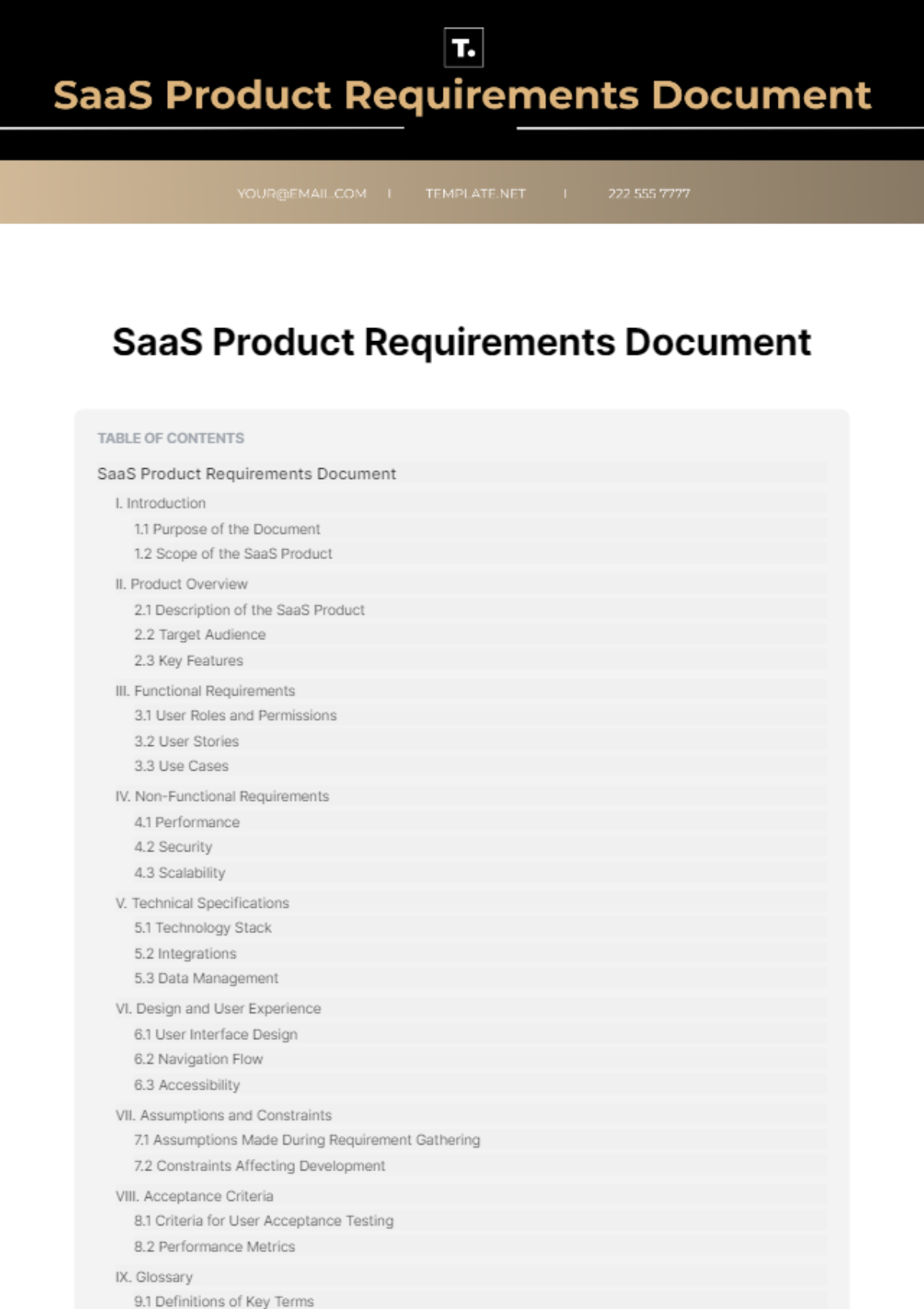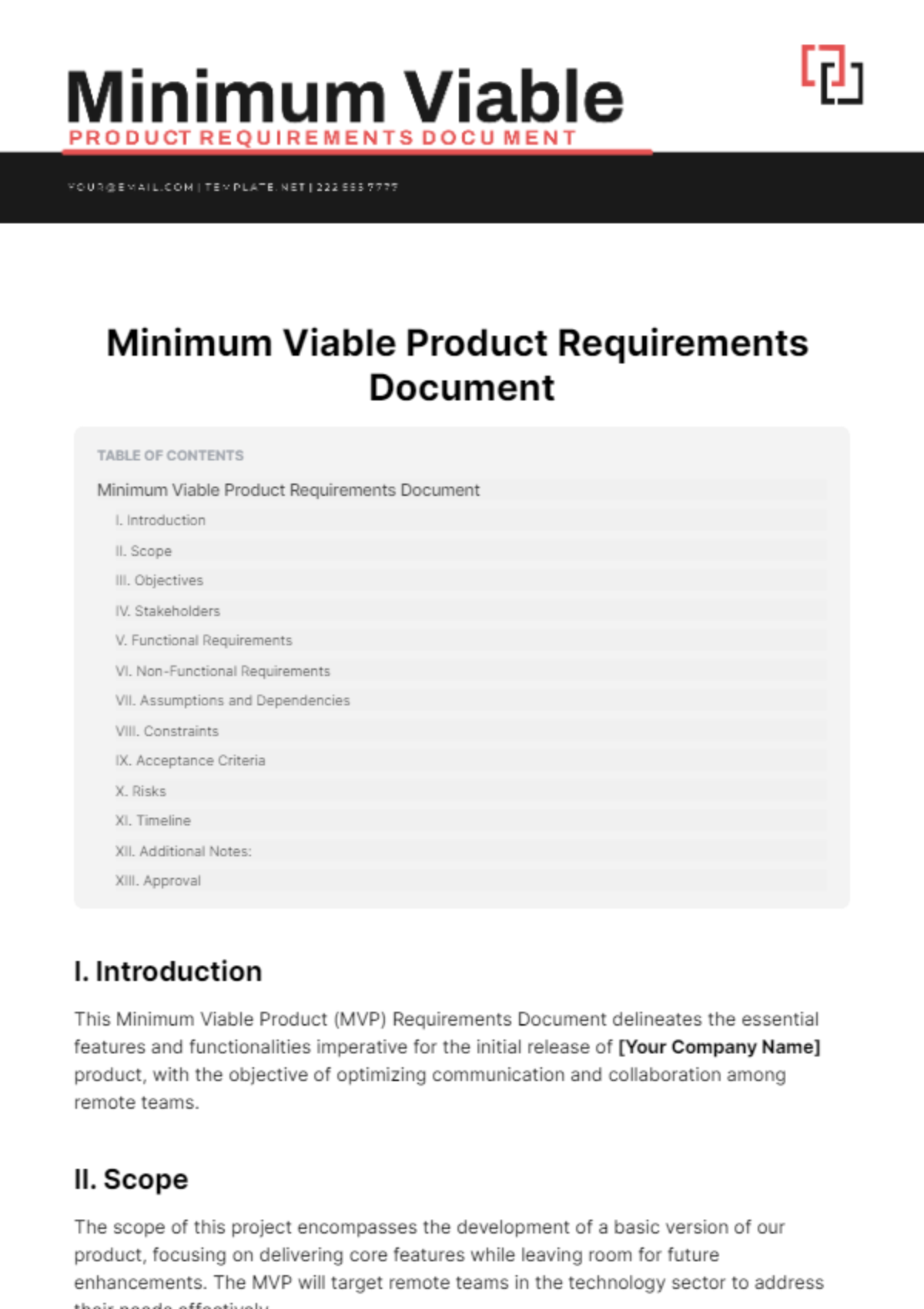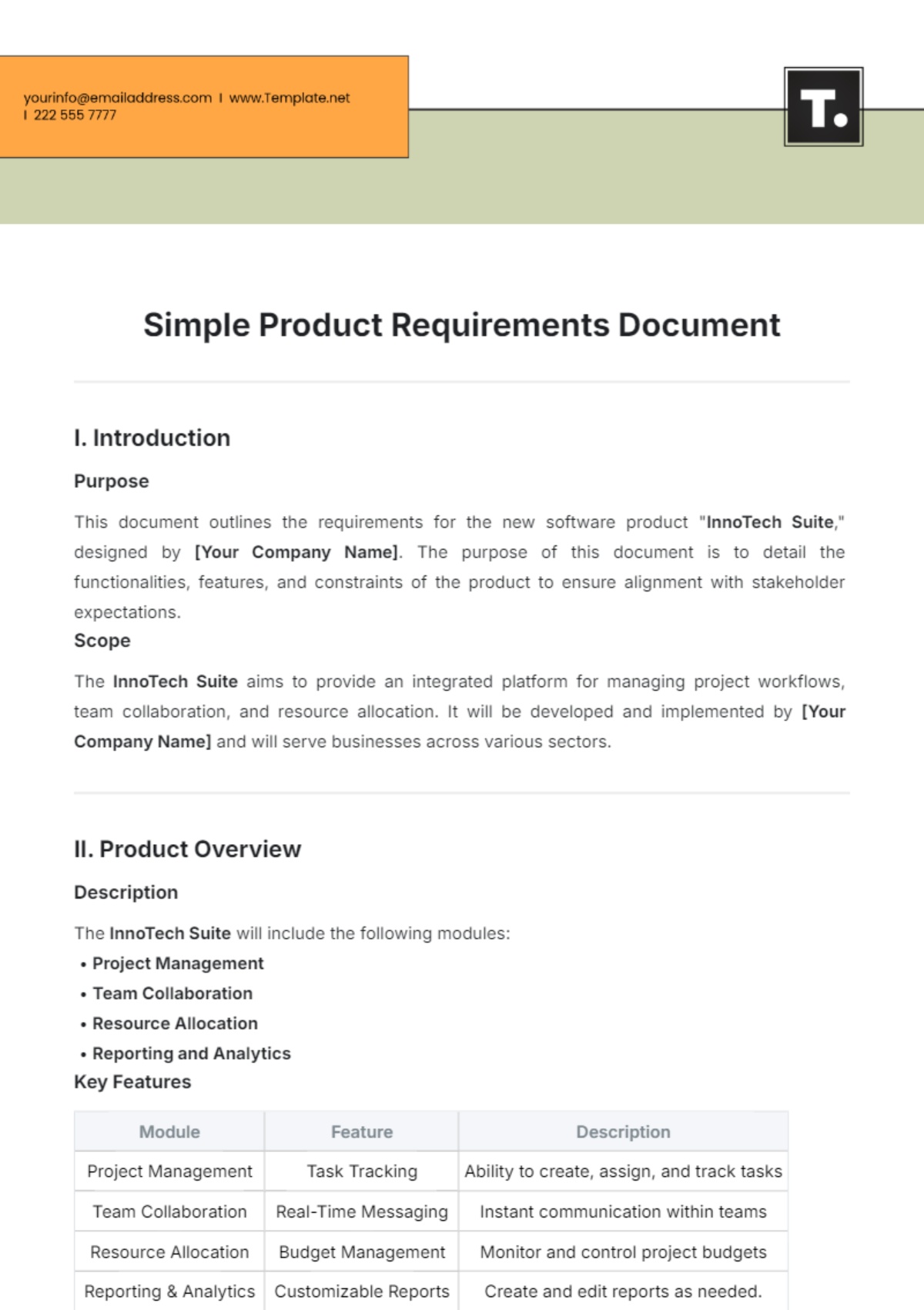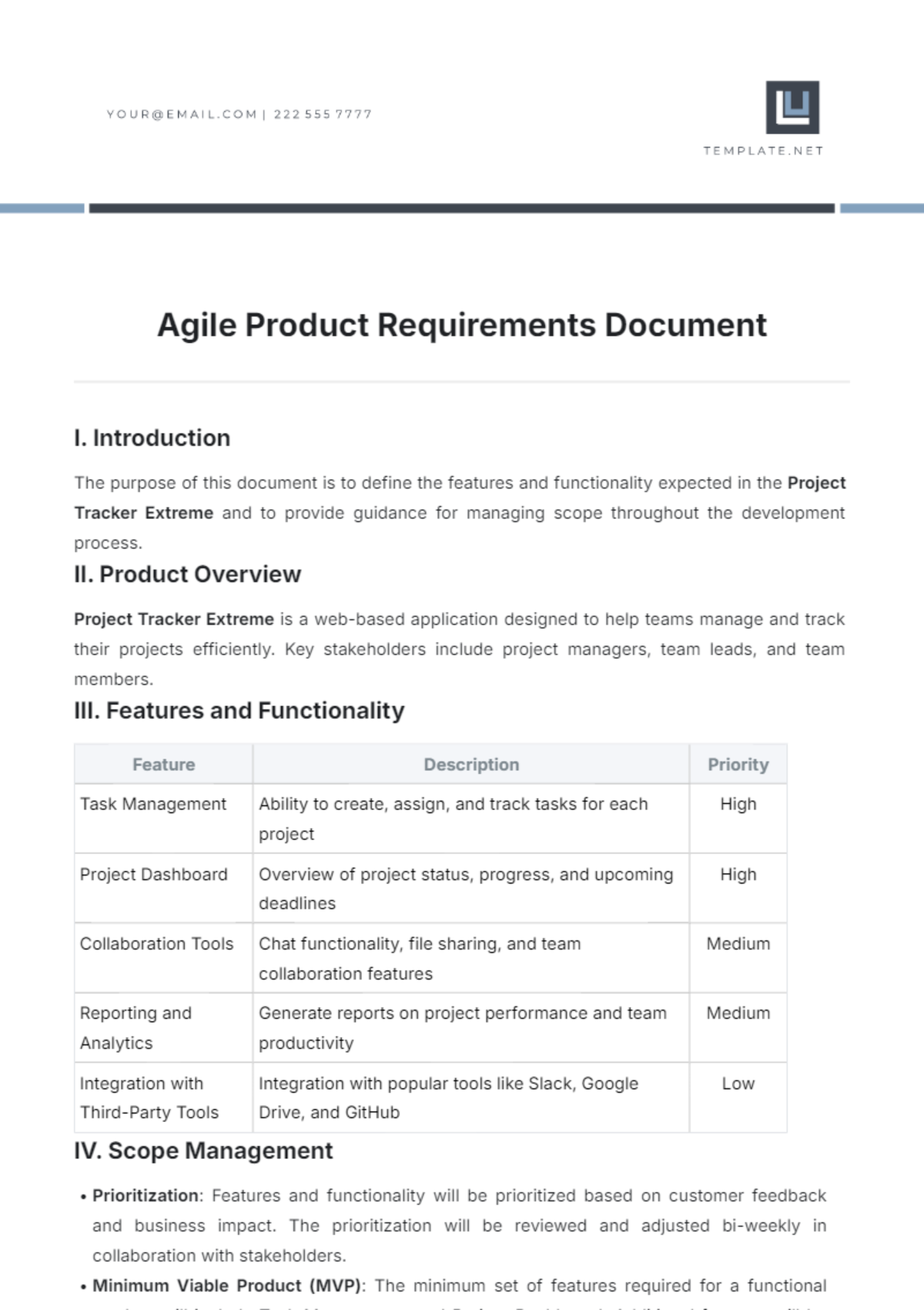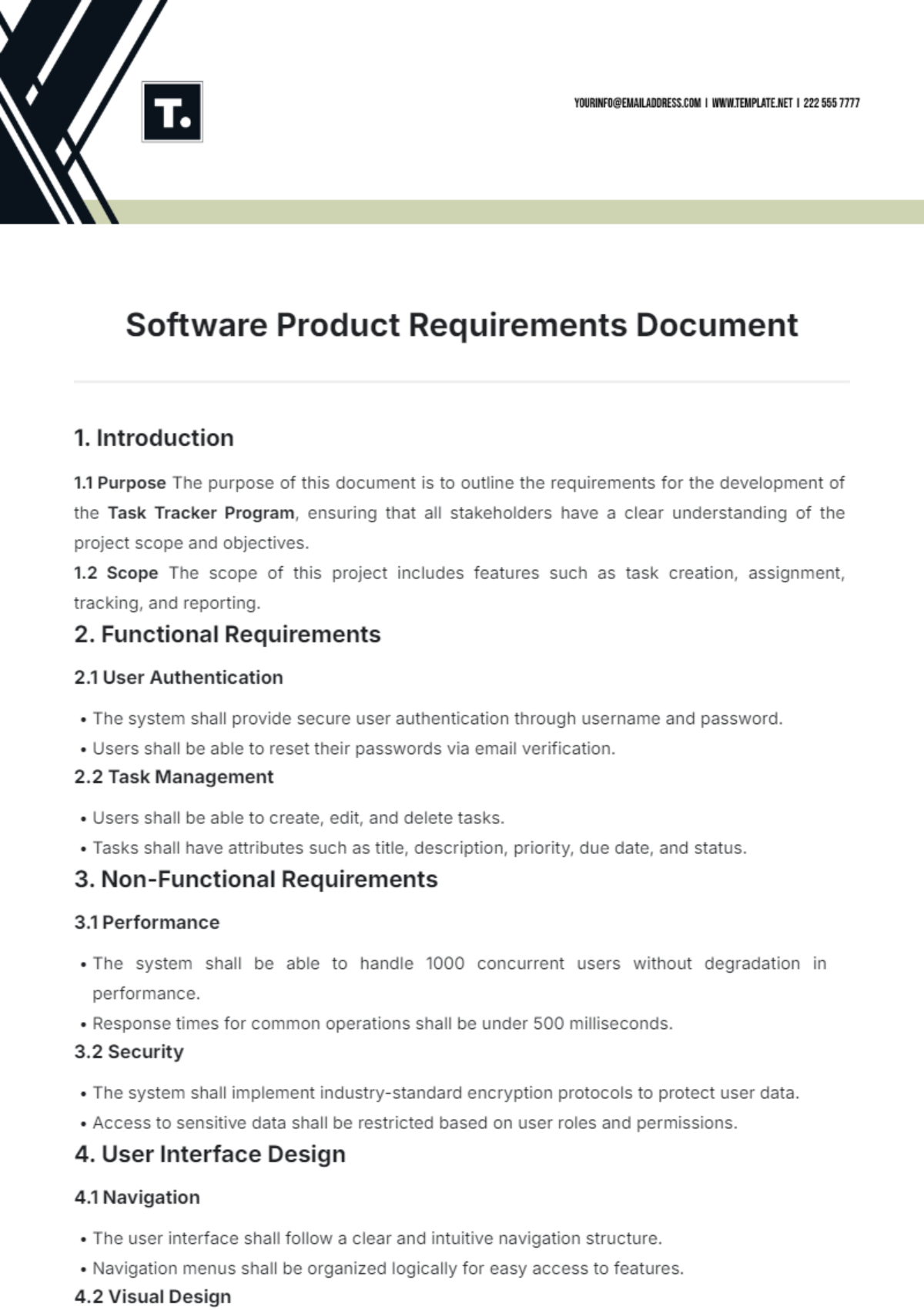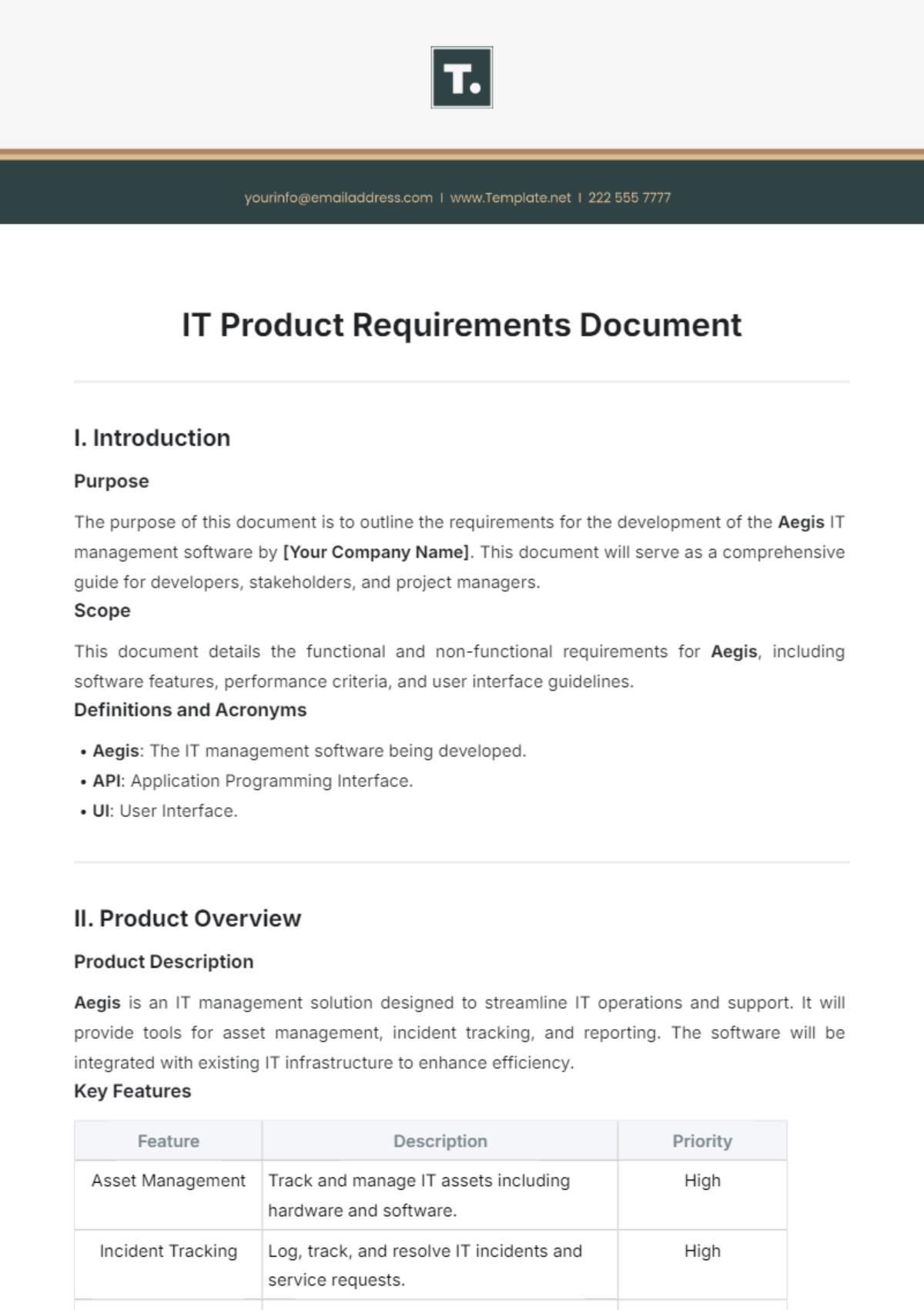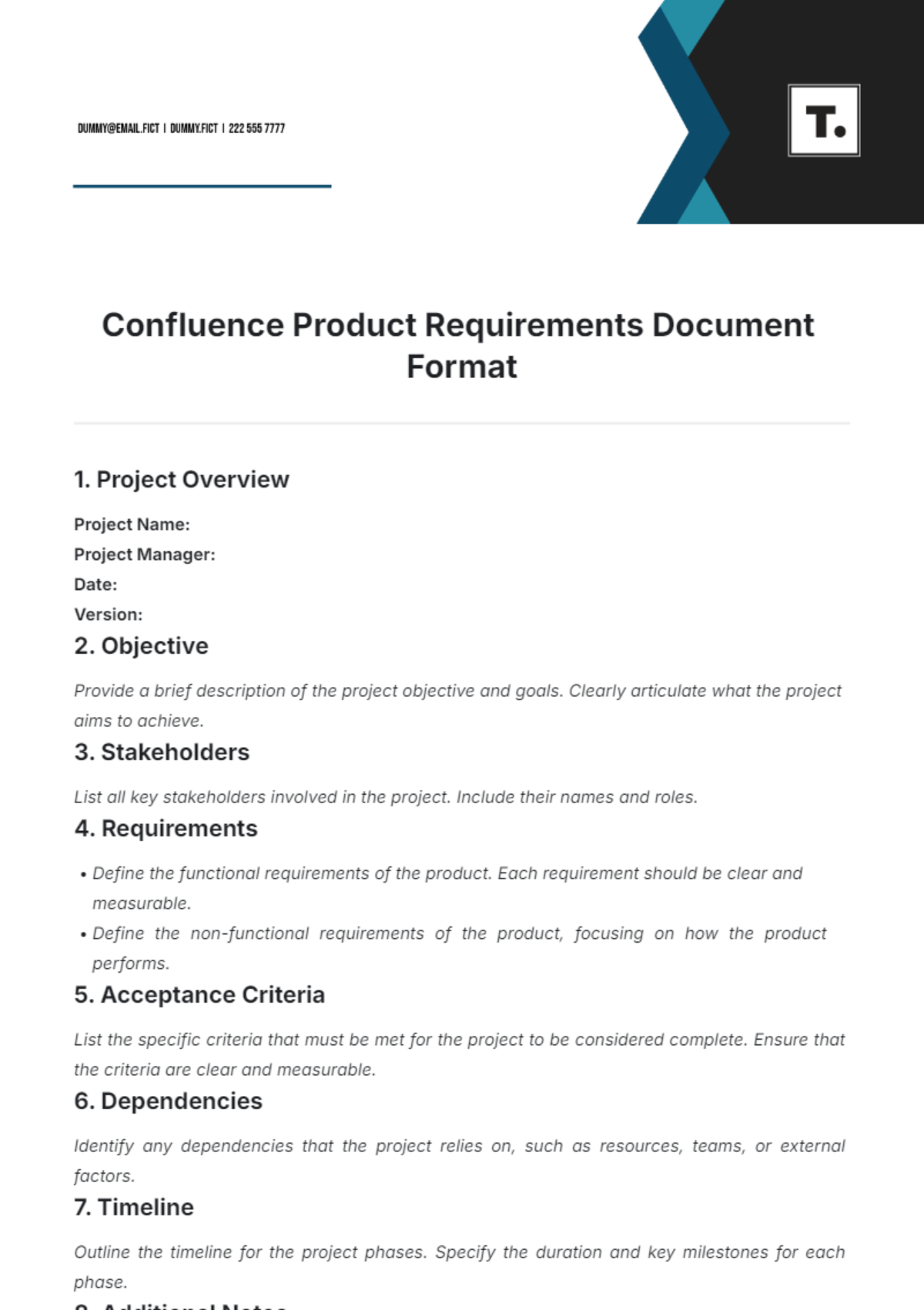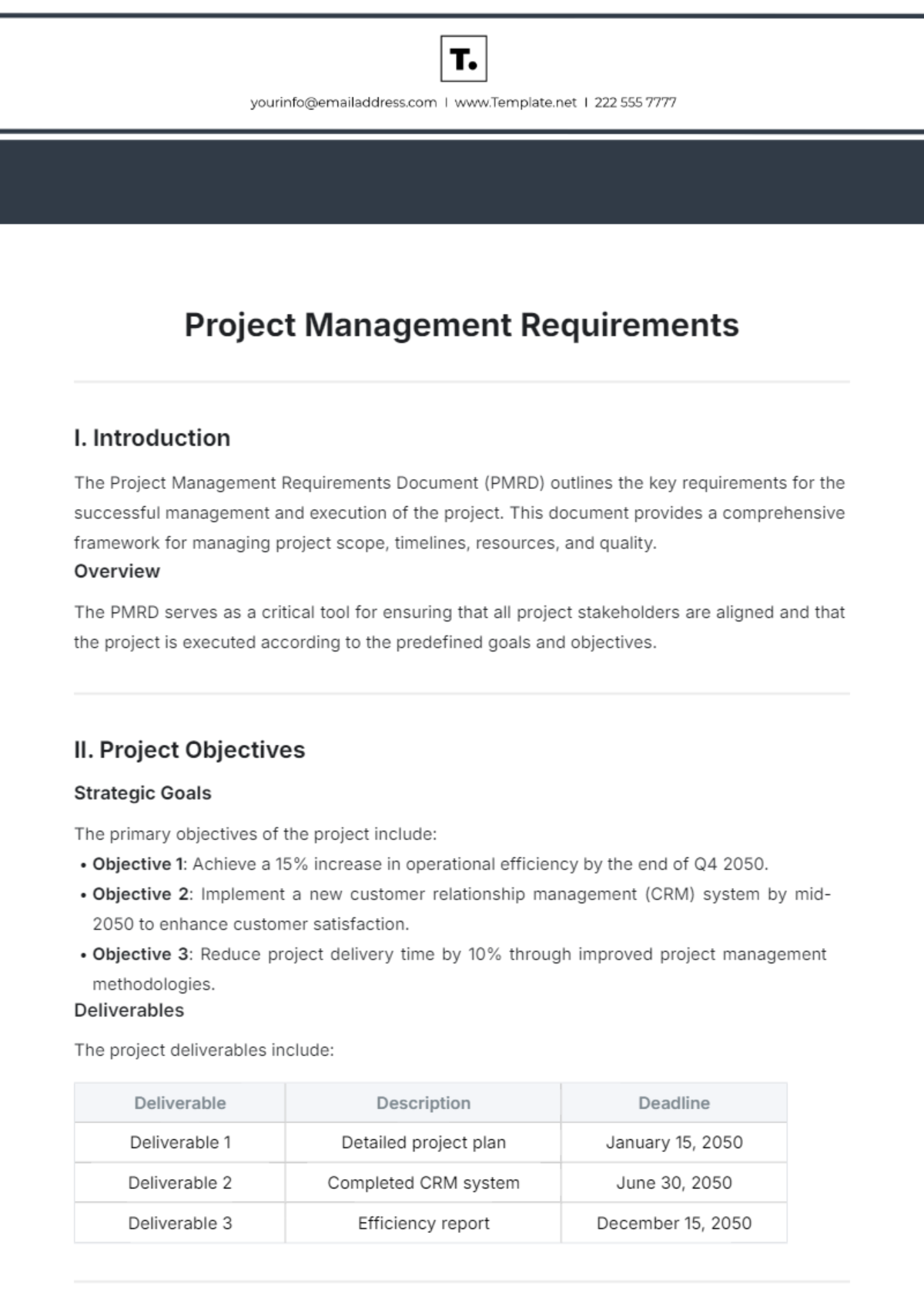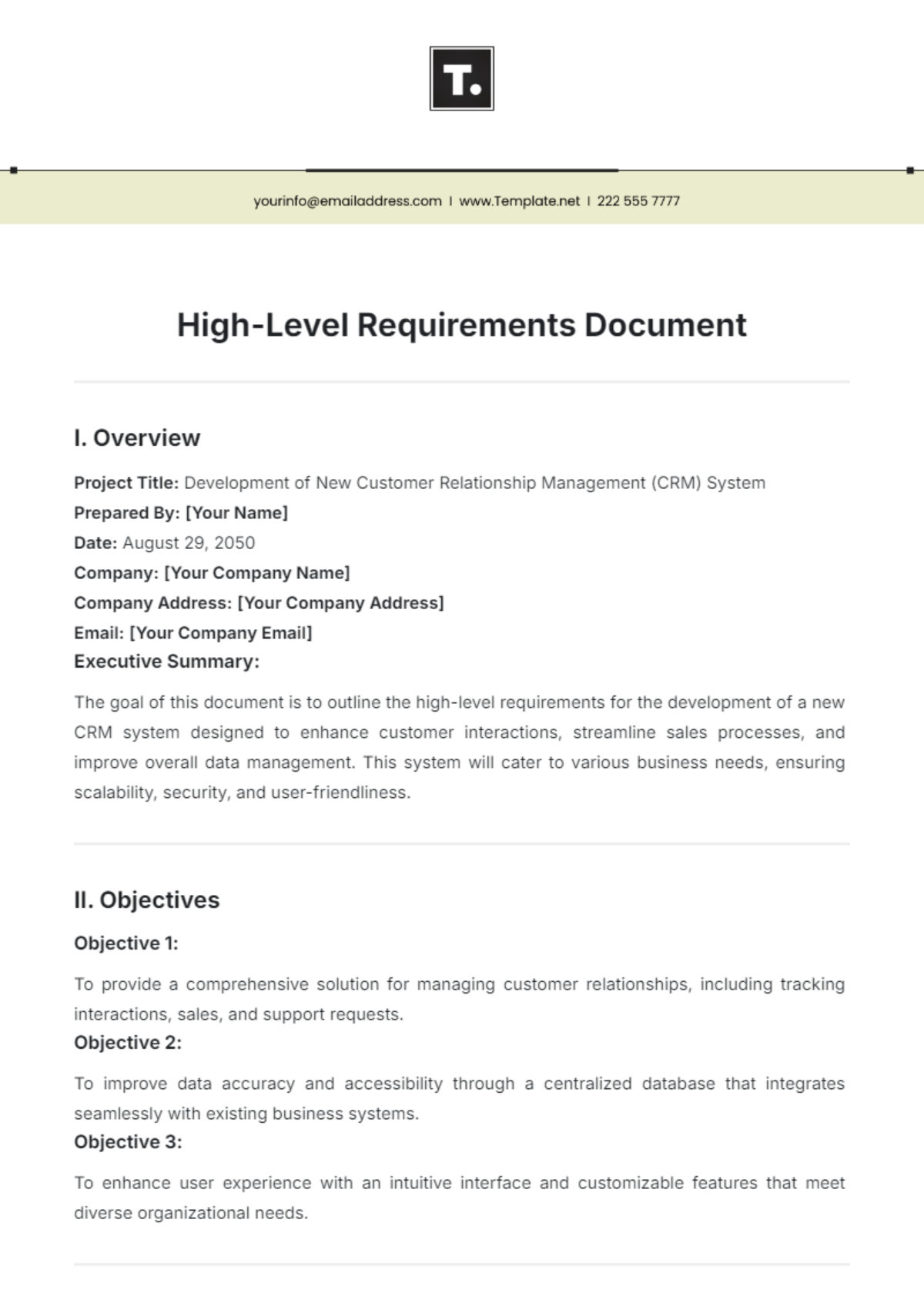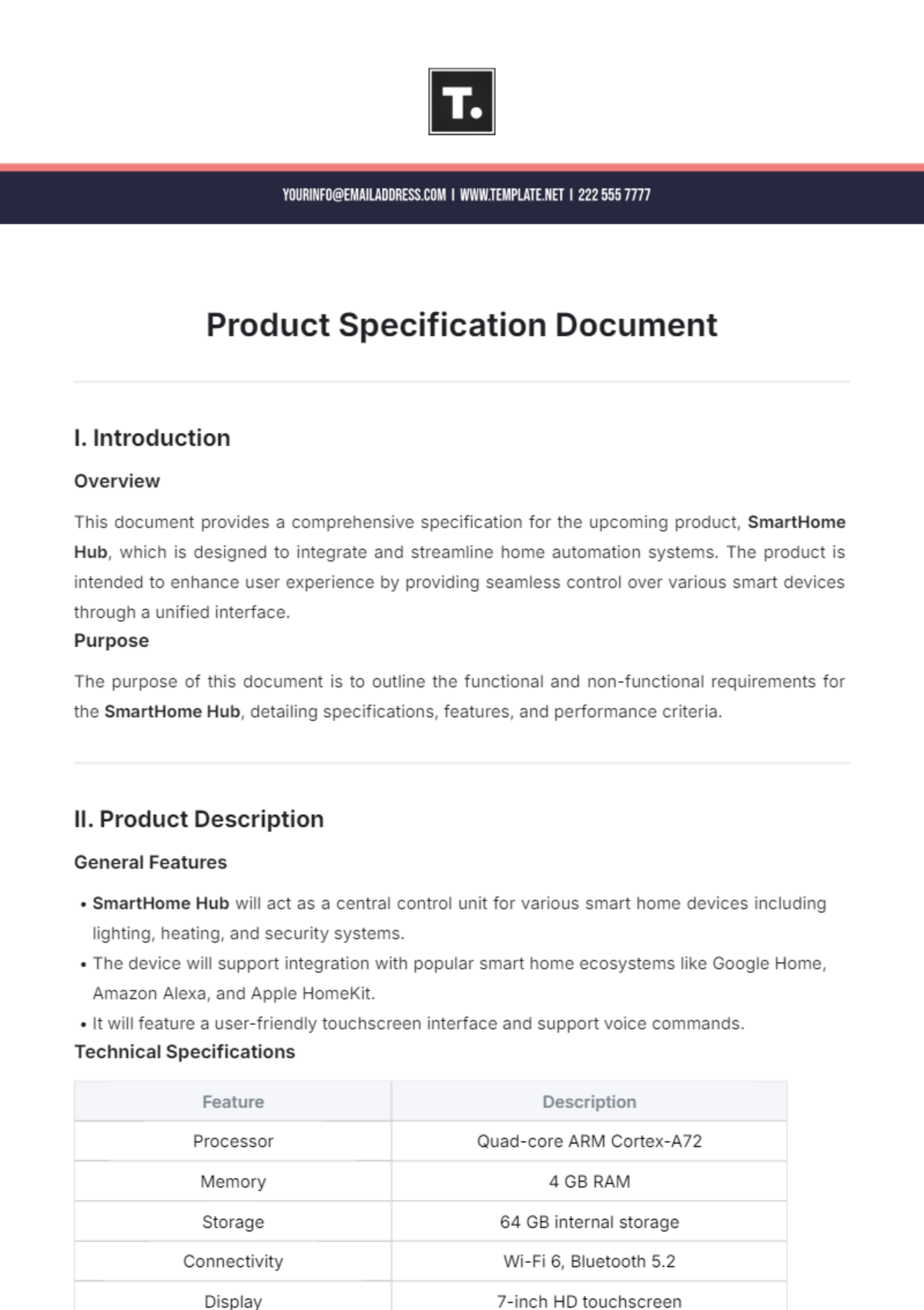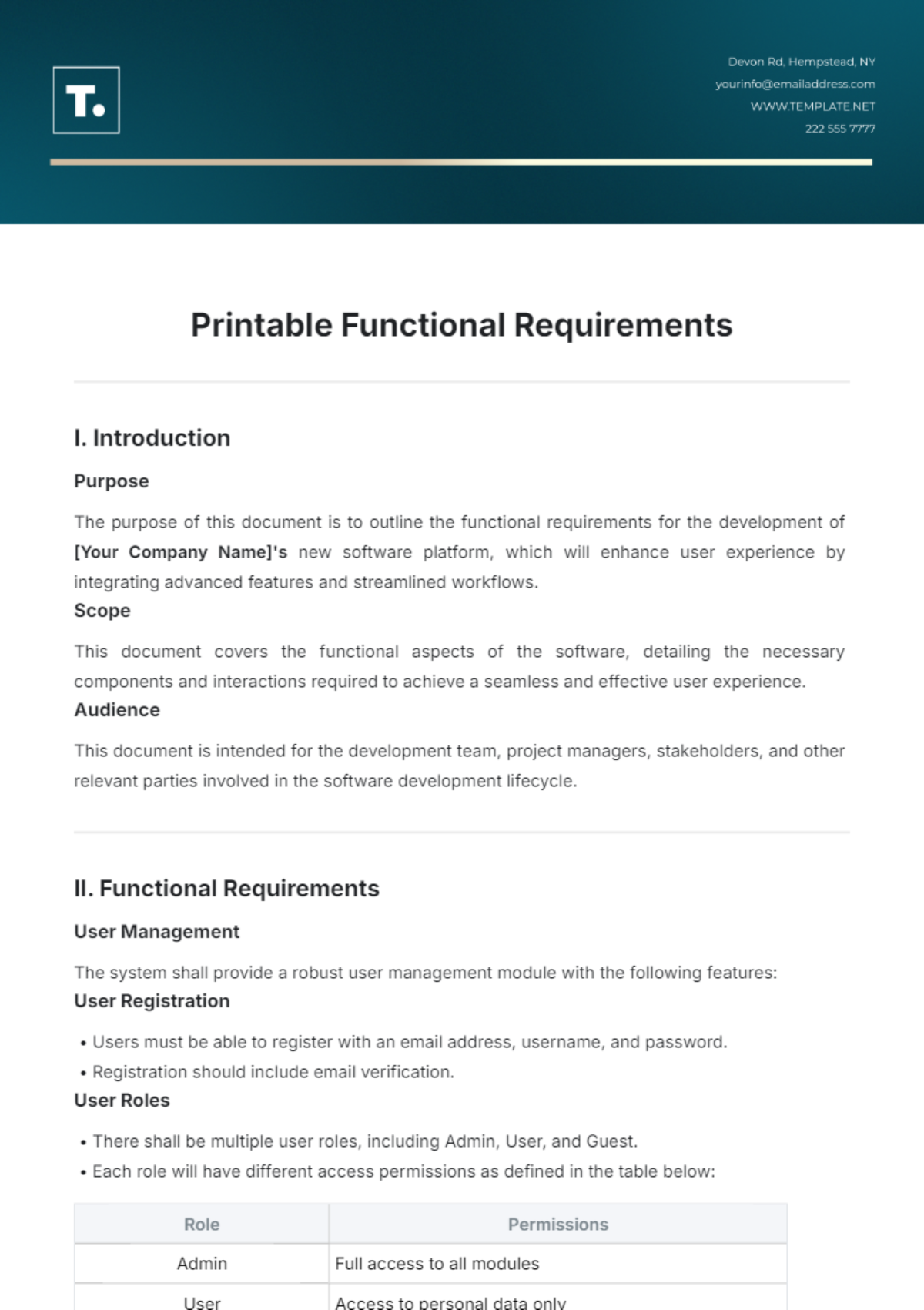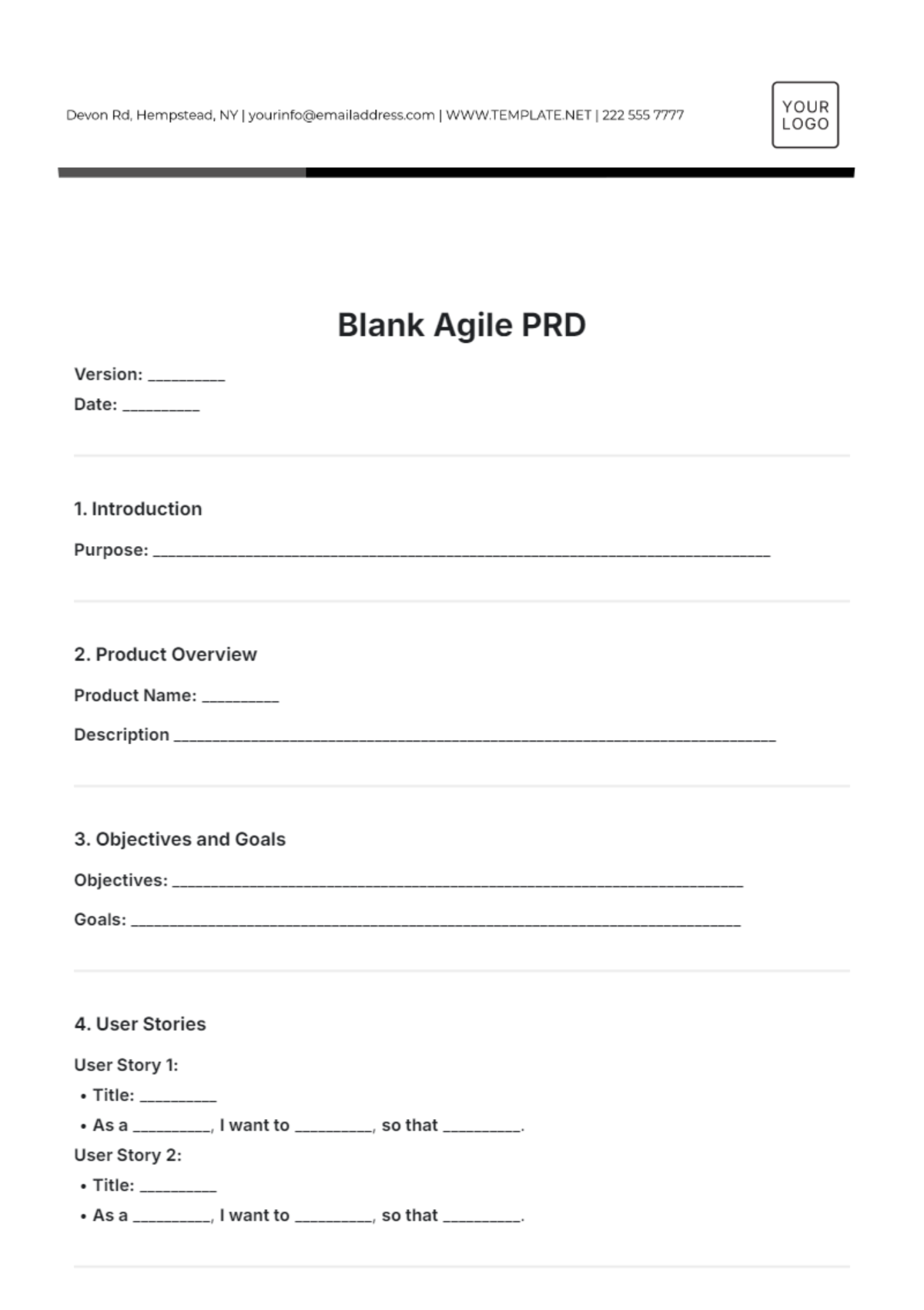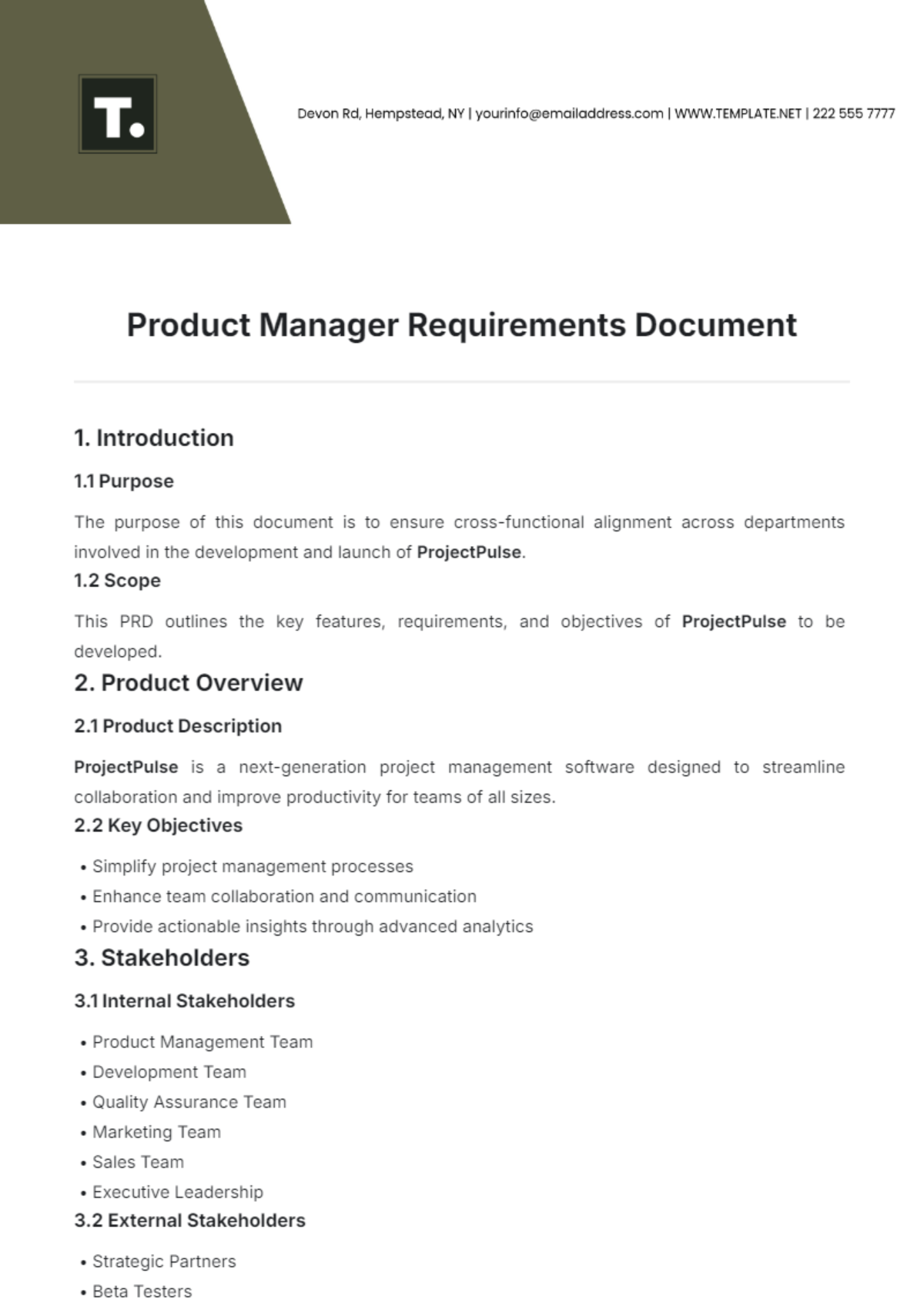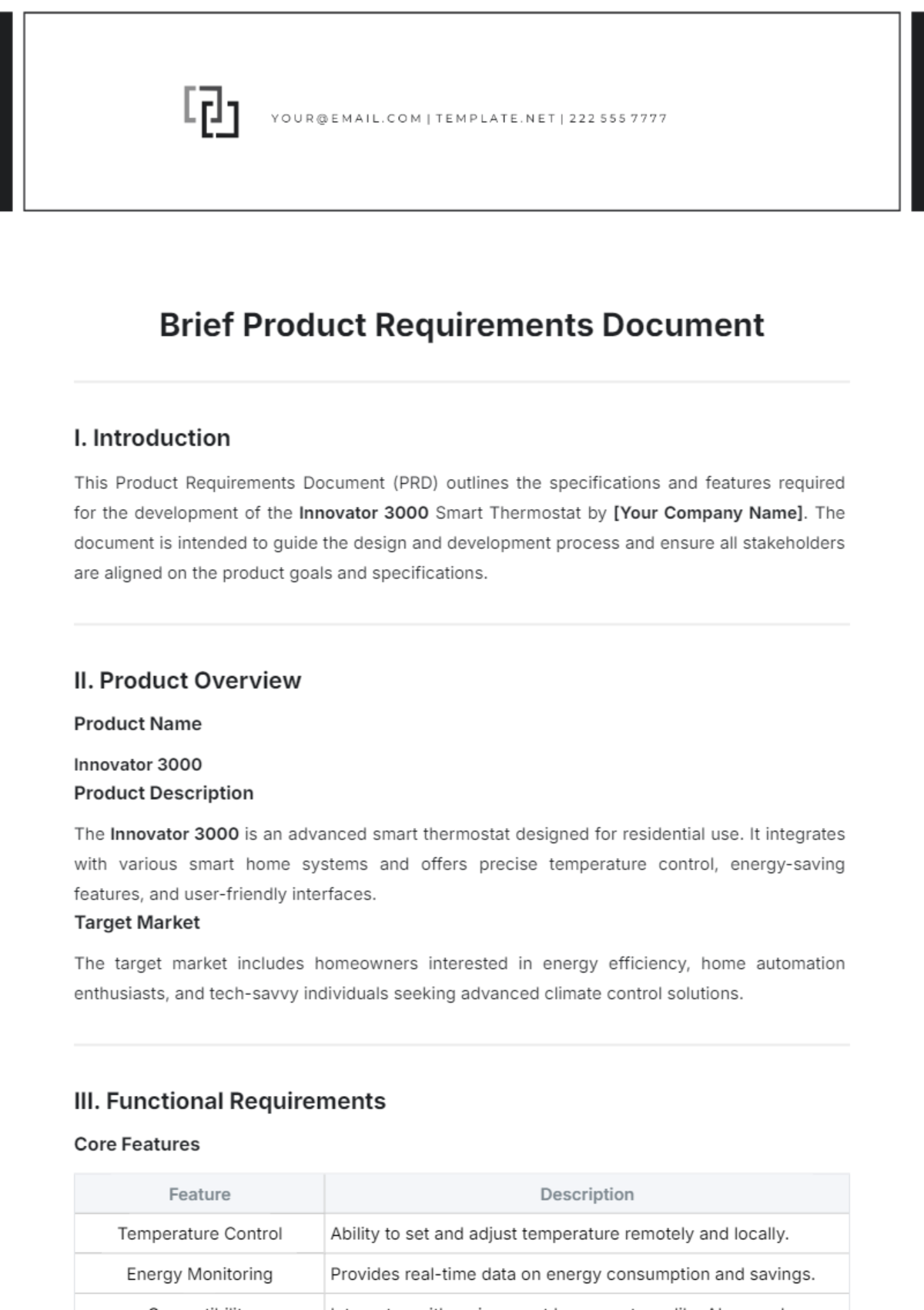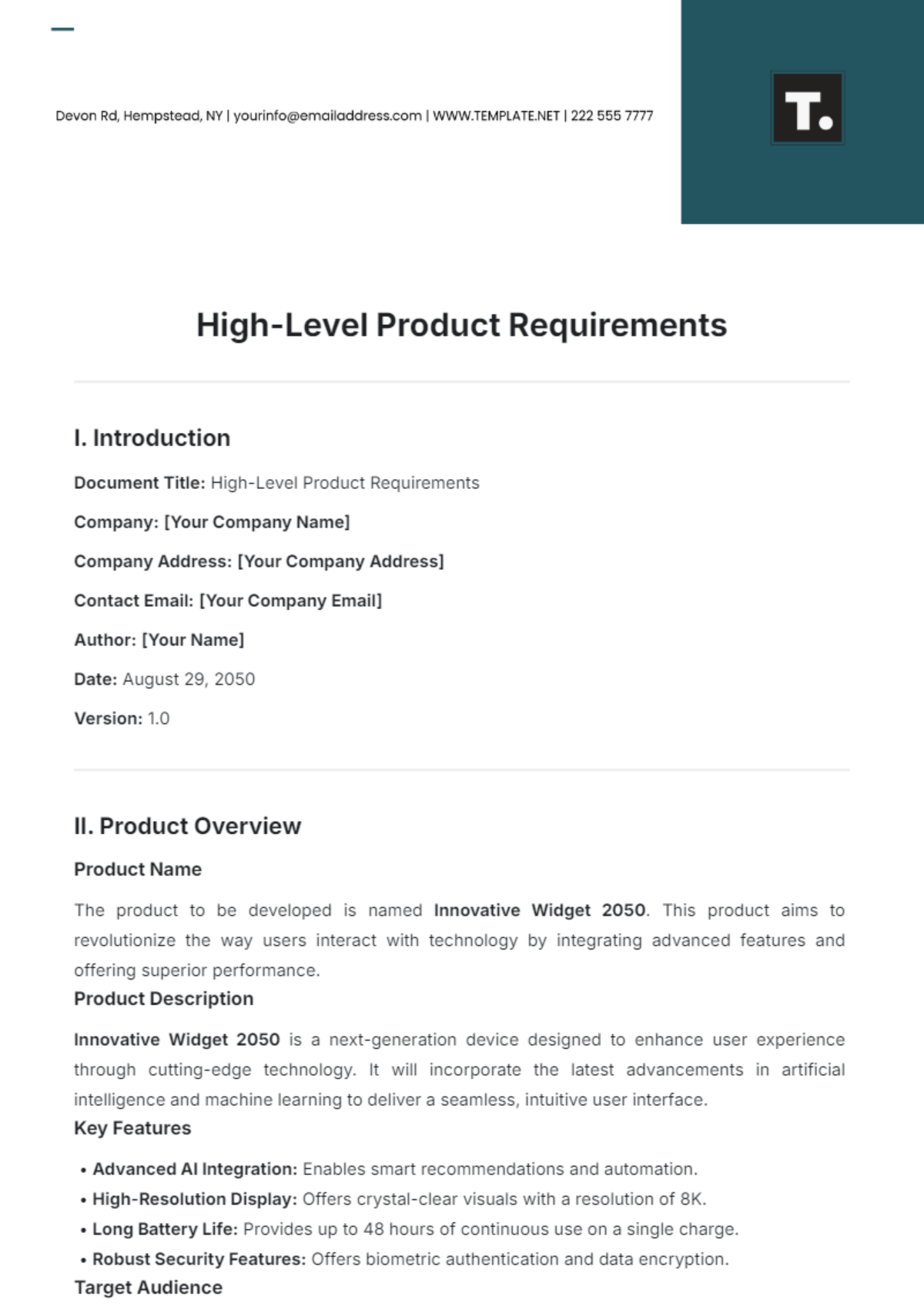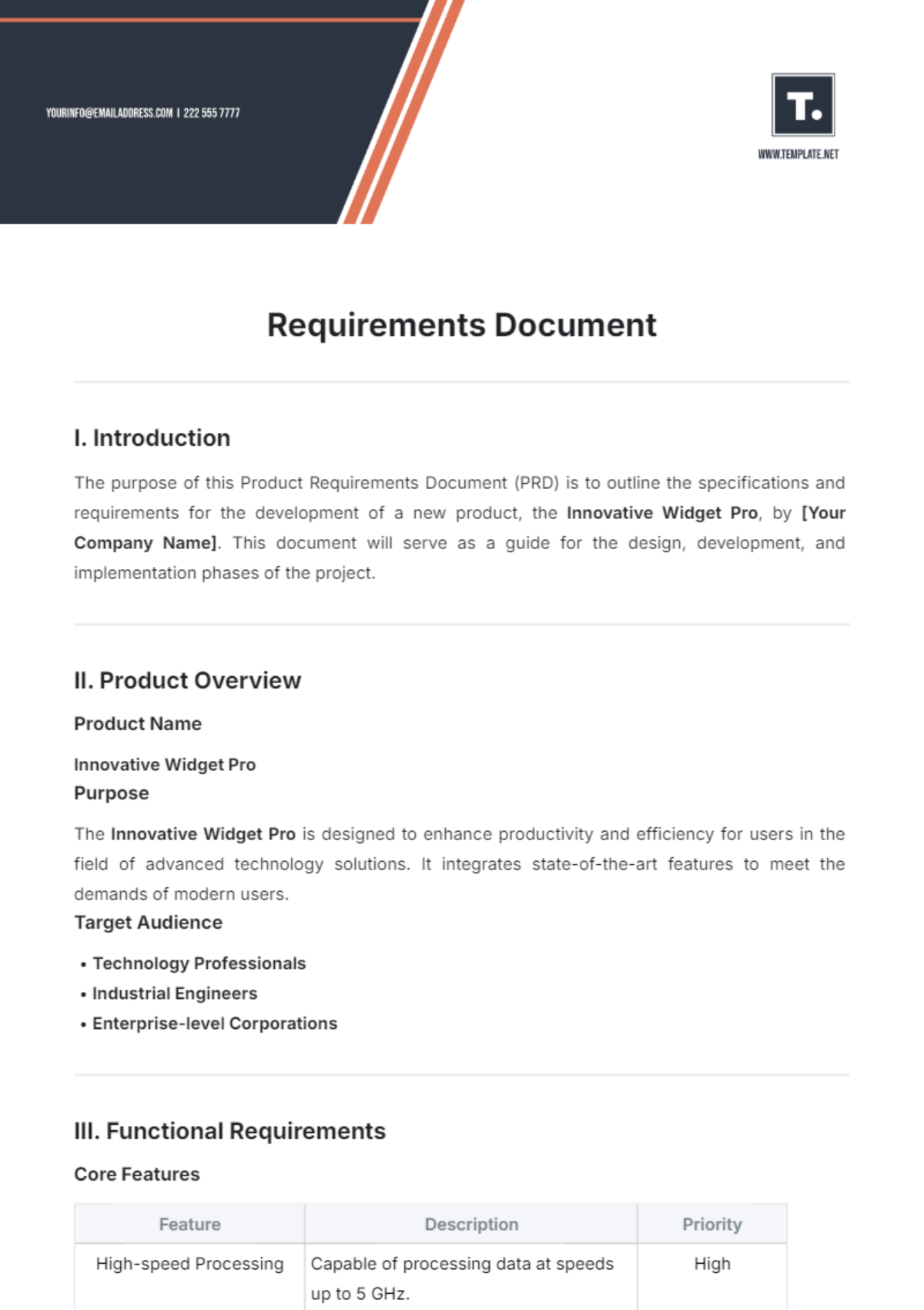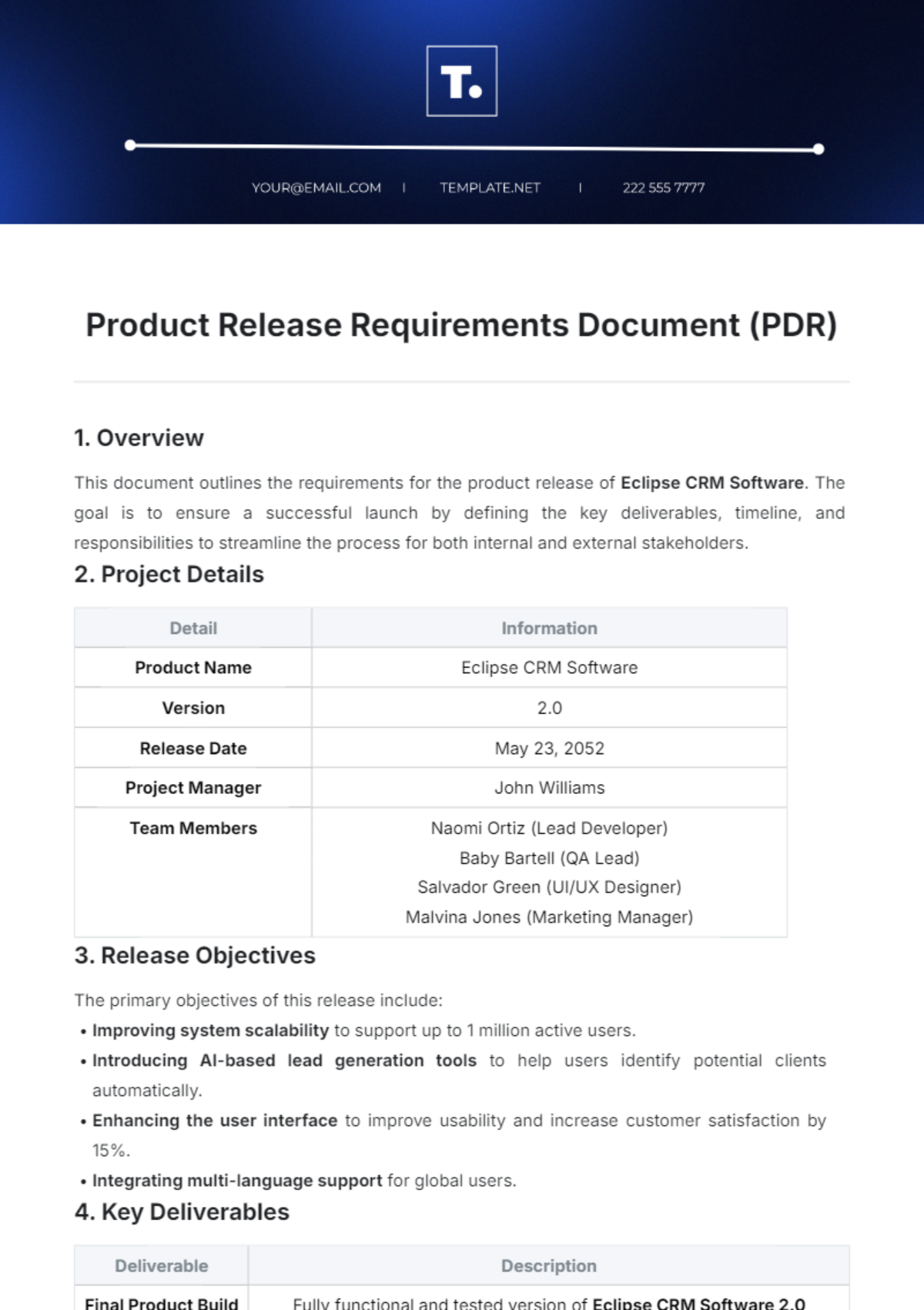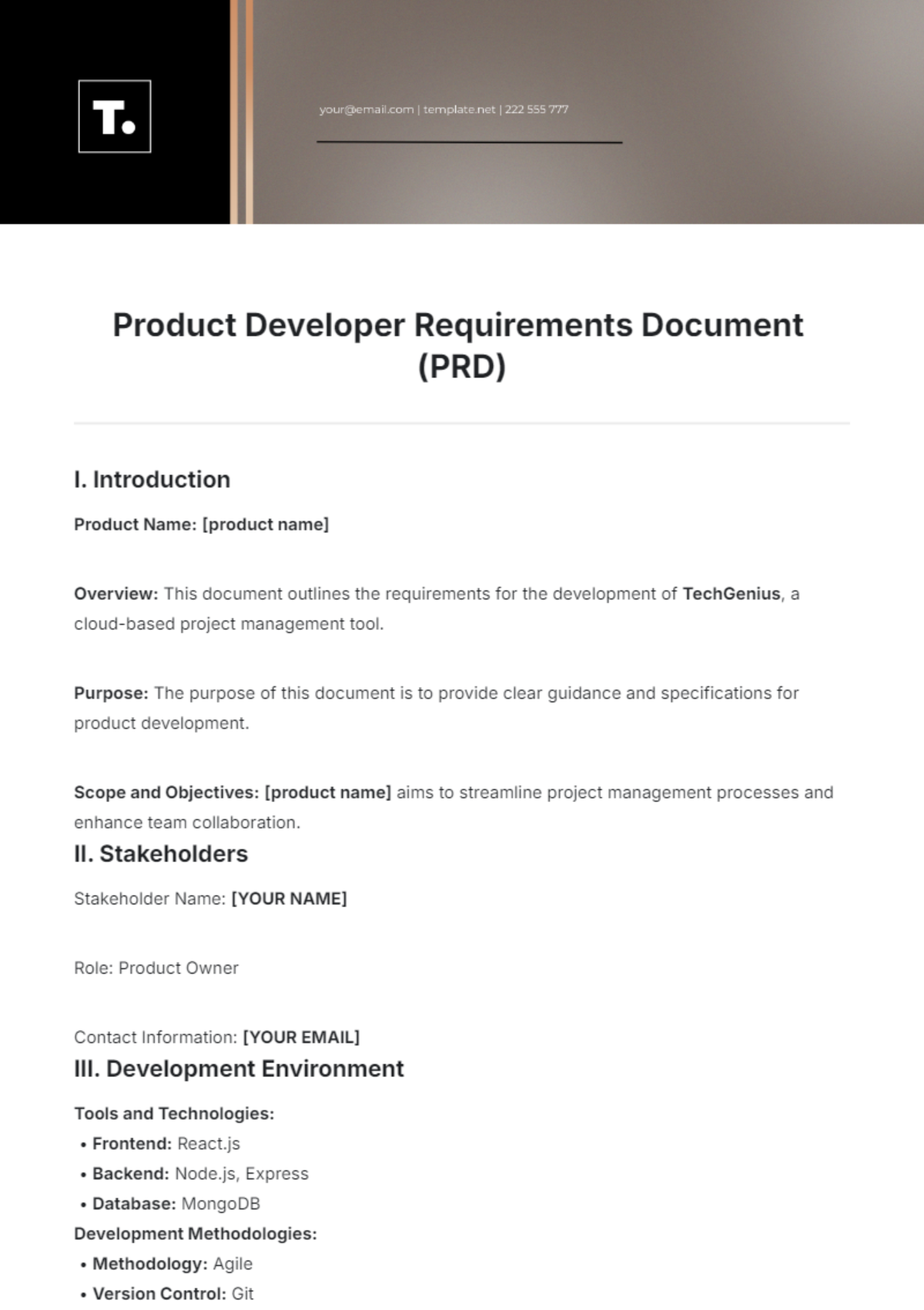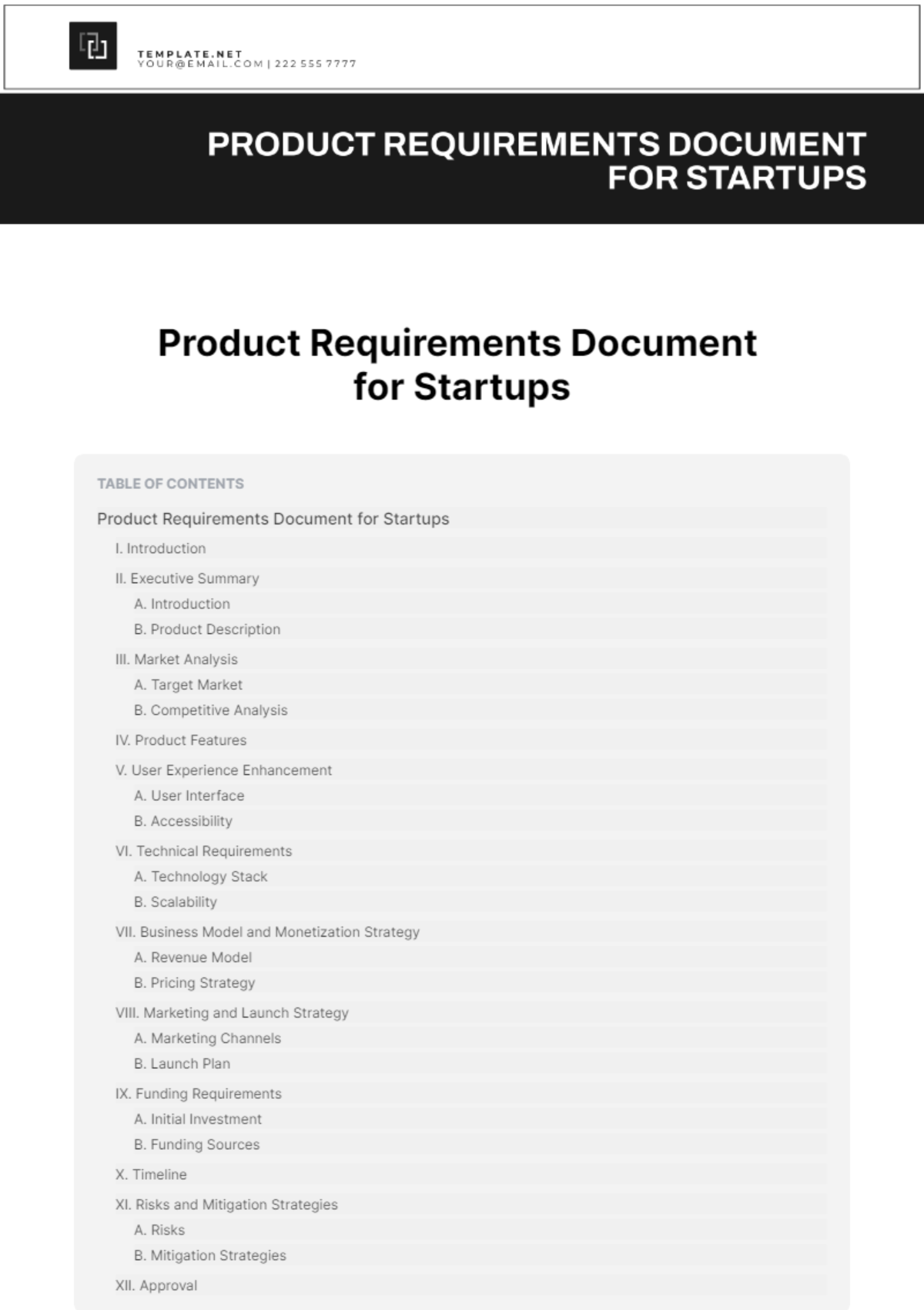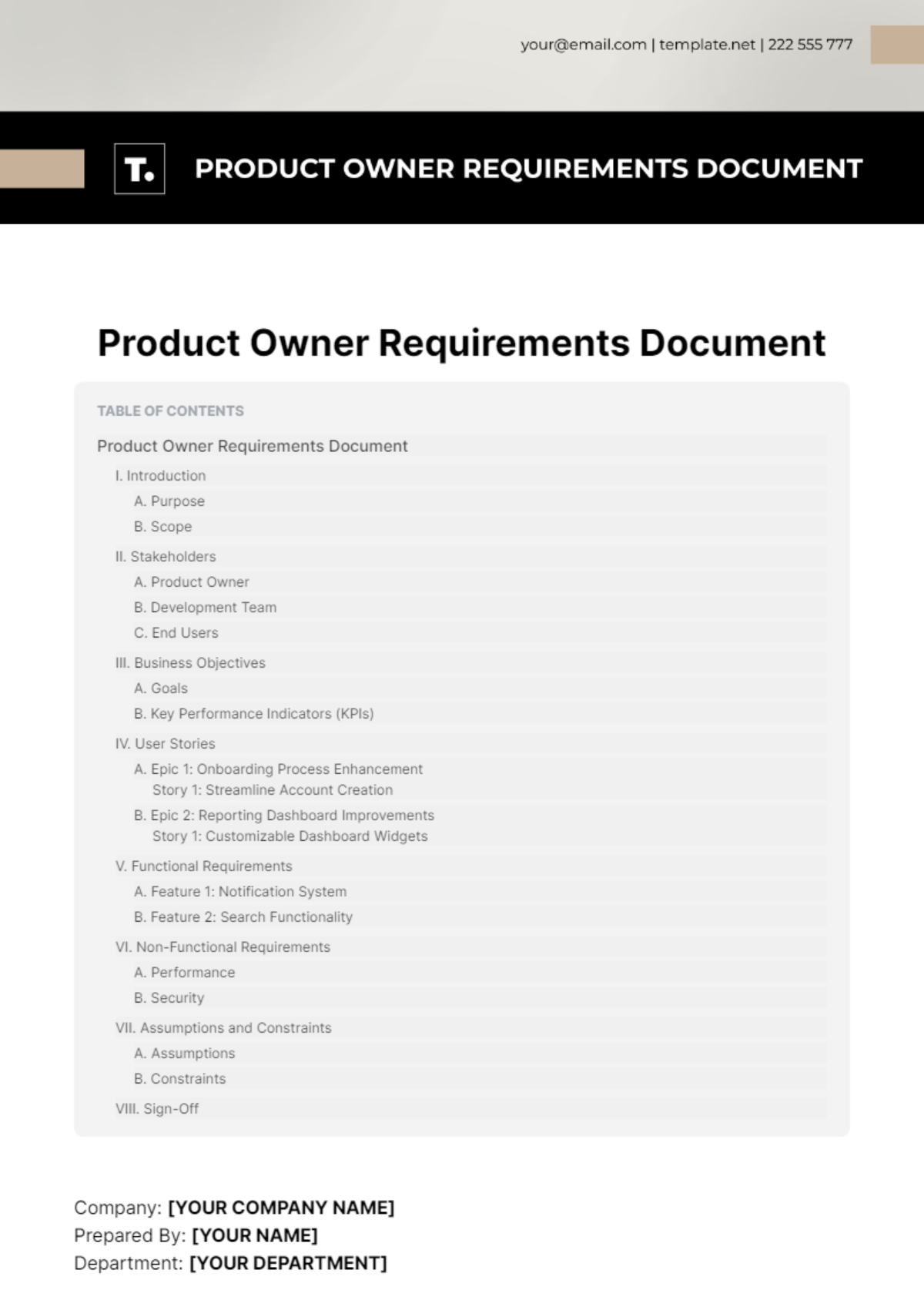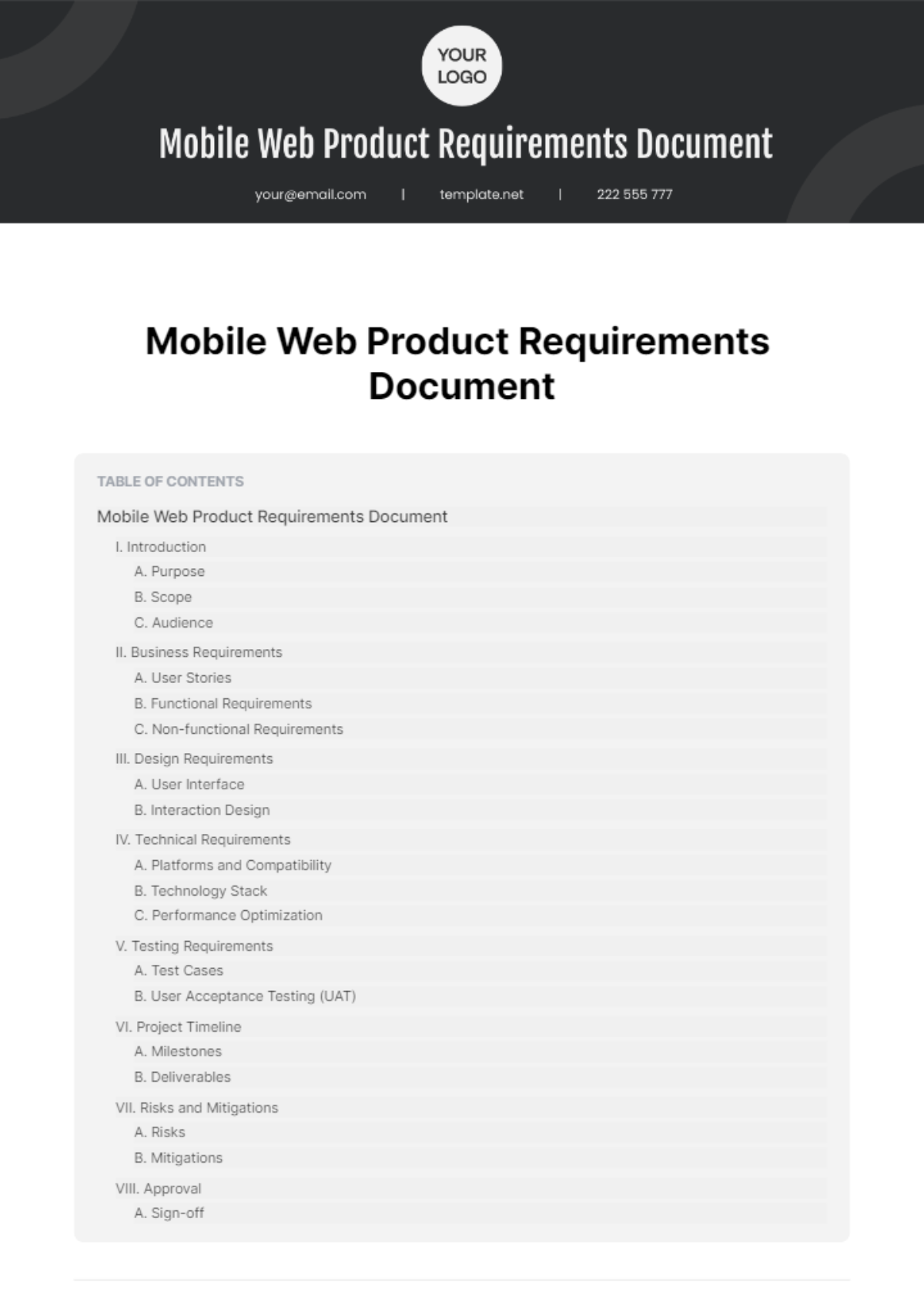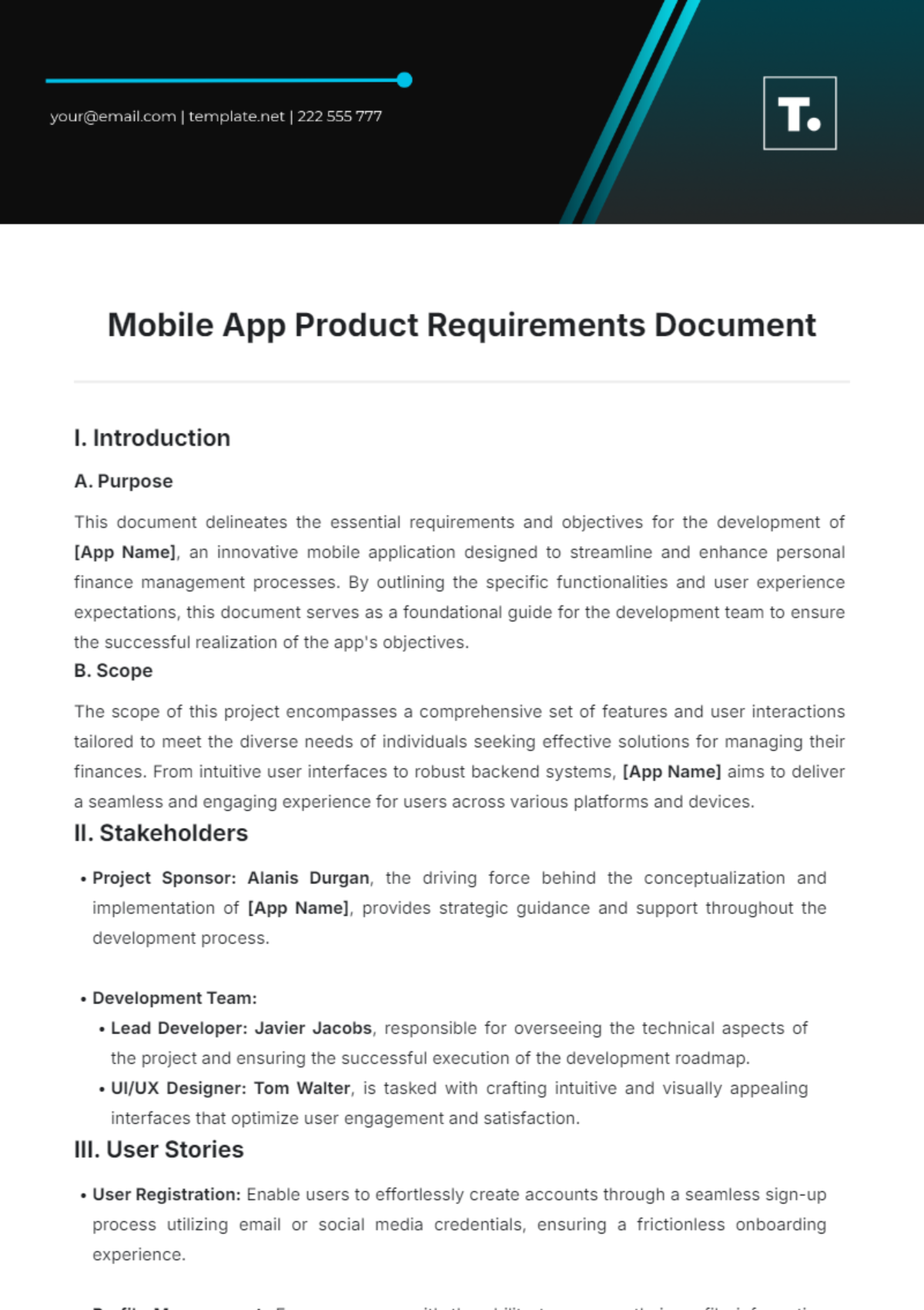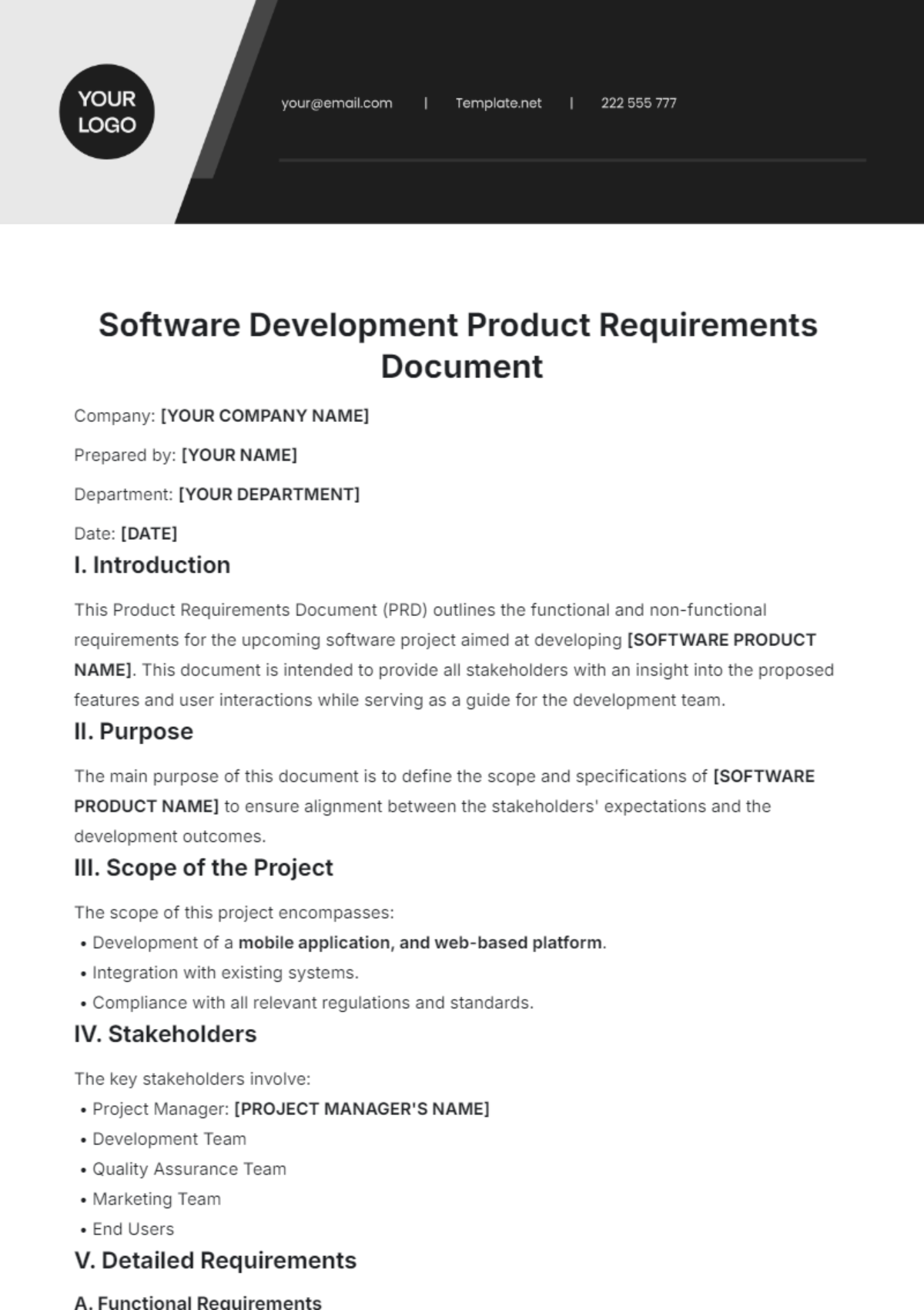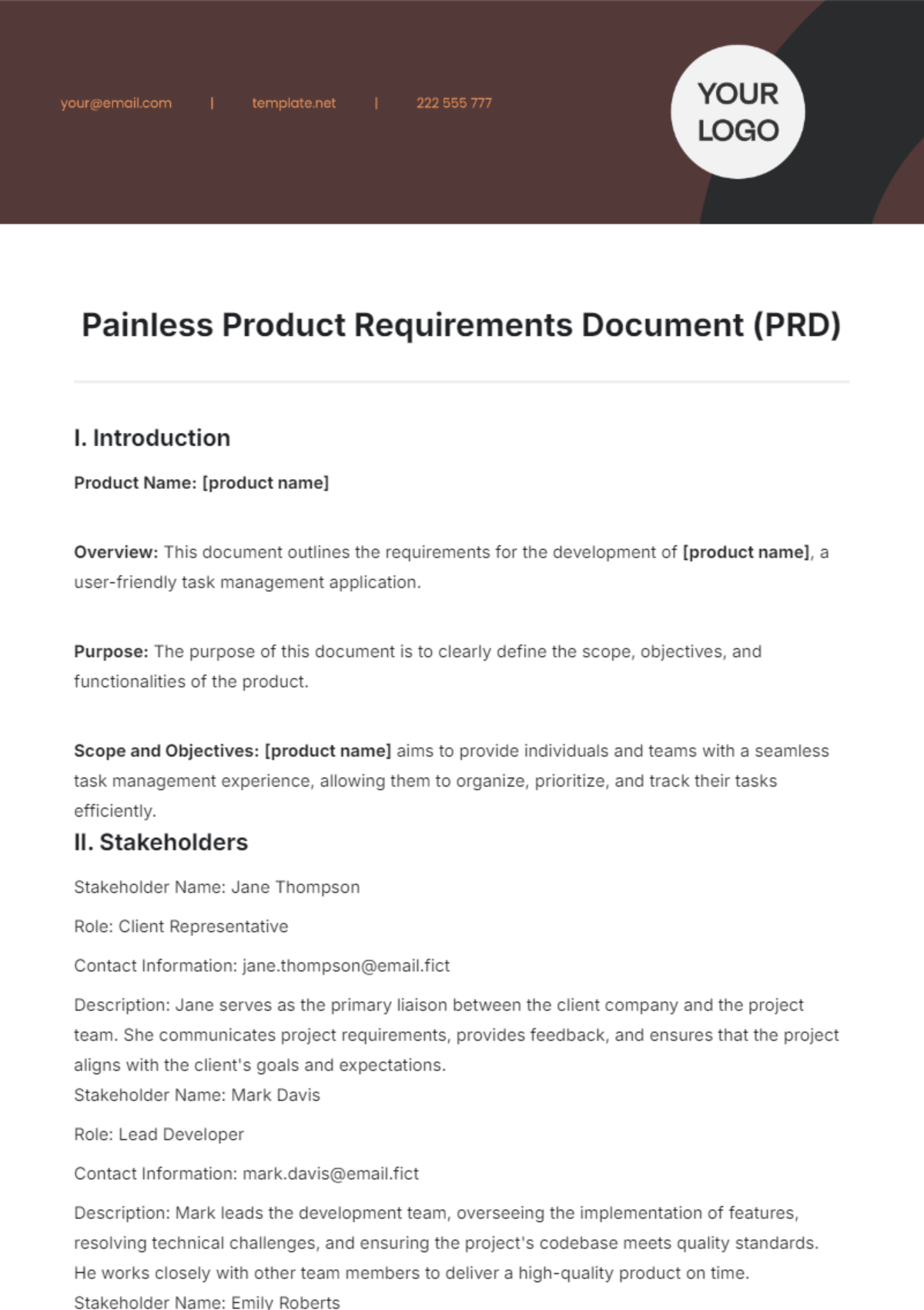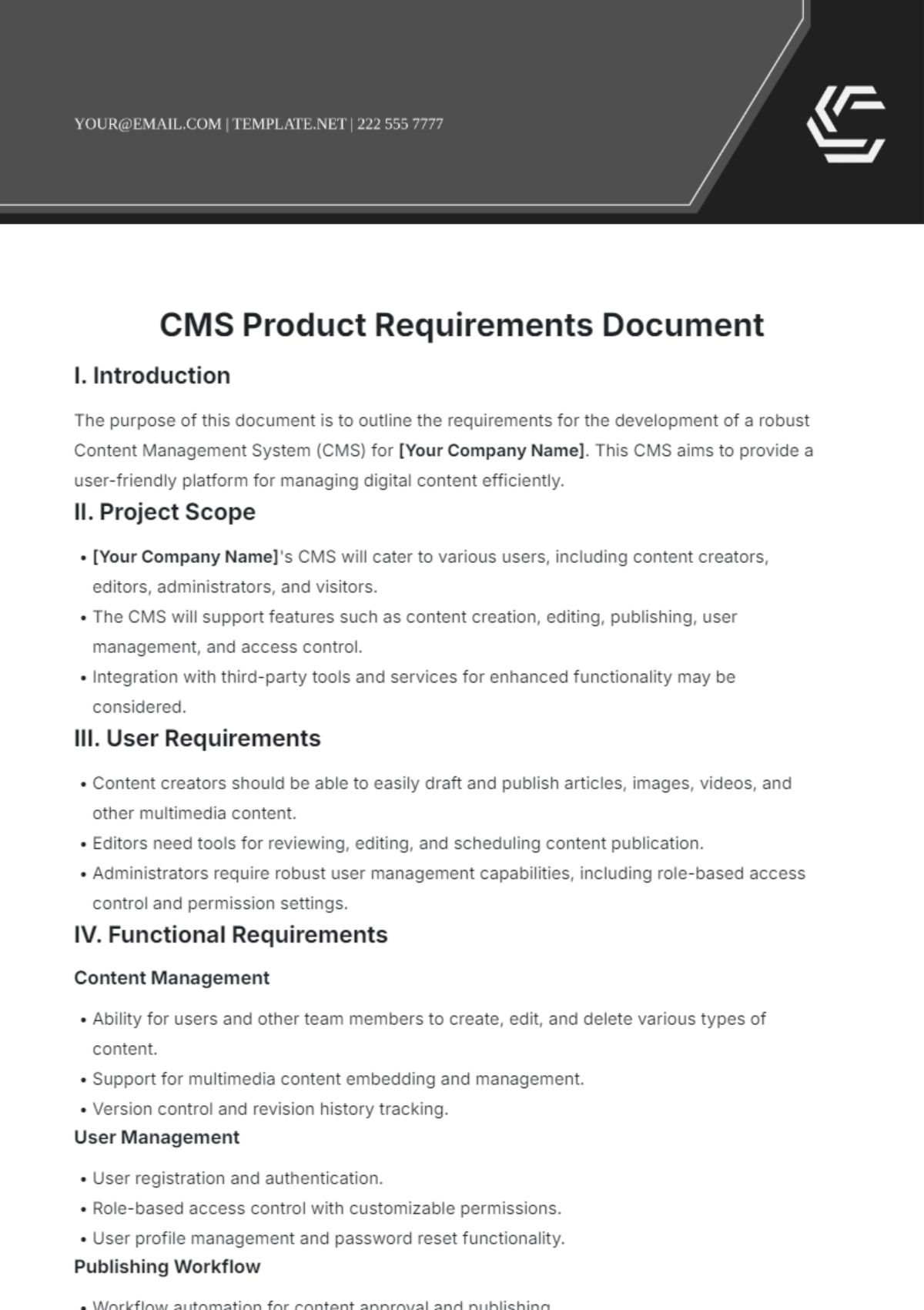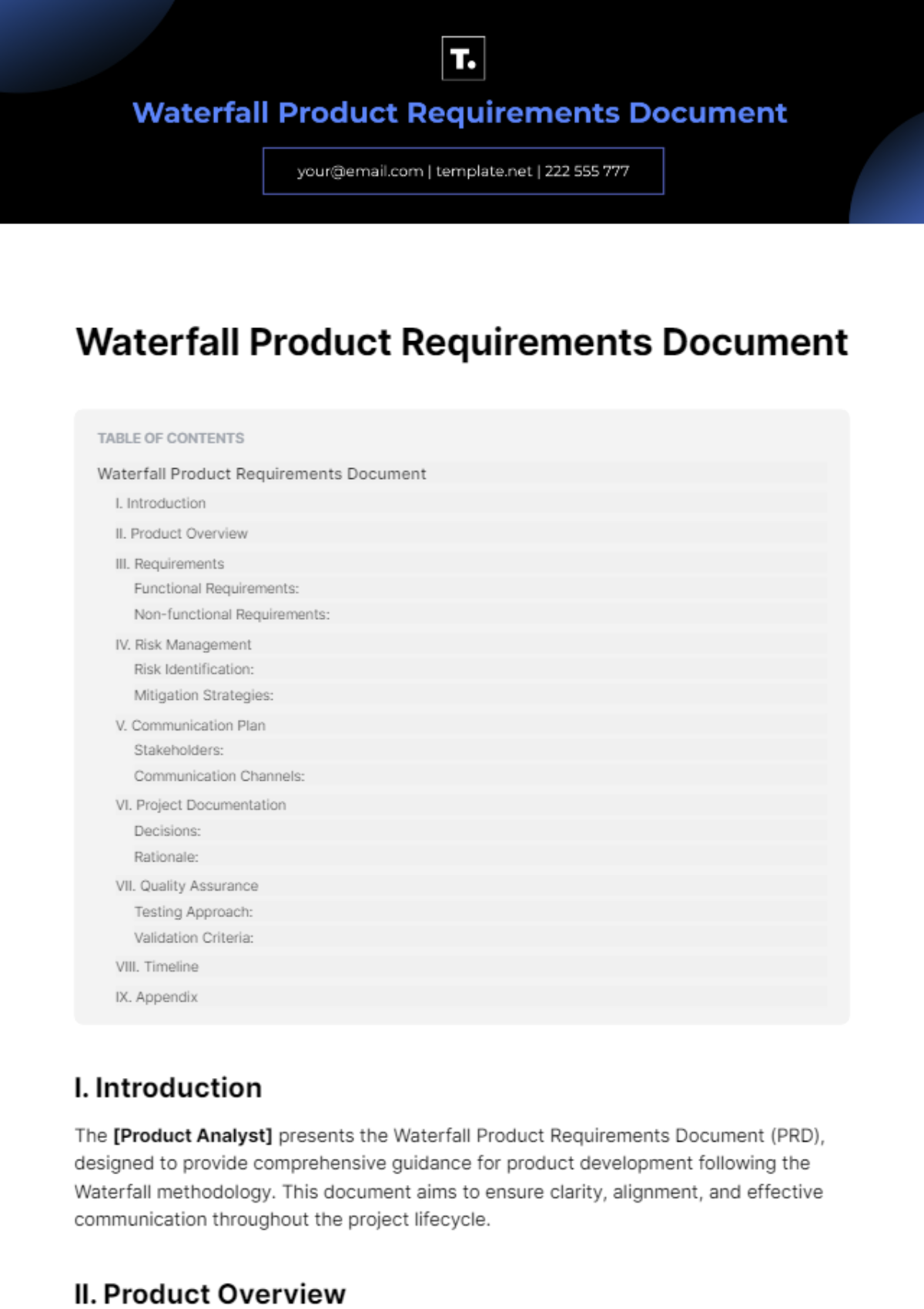SaaS Product Requirements Document
I. Introduction
1.1 Purpose of the Document
This document serves to define the requirements for the development of [Your Company Name]'s new SaaS product, aimed at optimizing project management for small businesses.
1.2 Scope of the SaaS Product
The scope encompasses features including task management, team collaboration, and comprehensive reporting functionalities.
II. Product Overview
2.1 Description of the SaaS Product
[Your Company Name] Pro is a sophisticated project management tool meticulously crafted for small businesses, offering a seamless blend of robust functionality and intuitive design.
2.2 Target Audience
Tailored for small business owners, project managers, and team leaders seeking efficiency, [Your Company Name] Pro simplifies task management, facilitates progress tracking, and enhances team communication.
2.3 Key Features
Task creation and assignment
Real-time collaboration
Customizable dashboards
Detailed reporting capabilities
III. Functional Requirements
3.1 User Roles and Permissions
Distinct user roles – Admin, Project Manager, and Team Member – with granular permissions aligned with their respective responsibilities.
3.2 User Stories
User-centric narratives, meticulously crafted to illustrate the seamless interaction between users and the system.
3.3 Use Cases
Detailed scenarios outlining how users interact with the system to achieve their objectives.
IV. Non-Functional Requirements
4.1 Performance
Stringent performance criteria, ensuring swift task updates and uninterrupted system availability.
4.2 Security
Rigorous security measures, including SSL encryption and role-based access control, safeguarding sensitive data and ensuring system integrity.
4.3 Scalability
An adaptable system architecture poised to accommodate exponential growth in user base without compromising performance.
V. Technical Specifications
5.1 Technology Stack
Backend: Node.js
Frontend: React.js
Database: MongoDB
5.2 Integrations
Seamless integration with Google Drive and Slack for streamlined collaboration and enhanced productivity.
5.3 Data Management
Robust data management strategies, ensuring secure storage, seamless access, and comprehensive backups.
VI. Design and User Experience
6.1 User Interface Design
Intuitive, user-centric interface design promoting ease of use and enhancing user experience.
6.2 Navigation Flow
Seamless navigation pathways ensuring effortless traversal across project dashboards, task lists, and reporting modules.
6.3 Accessibility
Compliance with WCAG 2.0 standards, ensuring accessibility features cater to diverse user needs.
VII. Assumptions and Constraints
7.1 Assumptions Made During Requirement Gathering
Documented assumptions to provide context and ensure clarity in decision-making.
7.2 Constraints Affecting Development
Identification and mitigation of constraints to optimize the development process.
VIII. Acceptance Criteria
8.1 Criteria for User Acceptance Testing
Comprehensive acceptance criteria ensuring the product meets user expectations and fulfills business objectives.
8.2 Performance Metrics
Established metrics to gauge user engagement, retention rates, and overall satisfaction.
IX. Glossary
9.1 Definitions of Key Terms
A comprehensive glossary elucidating key terminologies to facilitate understanding and communication.
X. Revision History
10.1 Document Version Control
A detailed log of document revisions, ensuring transparency and traceability throughout the development process.
XI. Appendix
11.1 Supporting Documentation
Inclusion of supplementary documents, such as user personas, competitive analysis reports, and technical architecture diagrams.
[Your Name]
[Your Company Name]
[Your Email]
